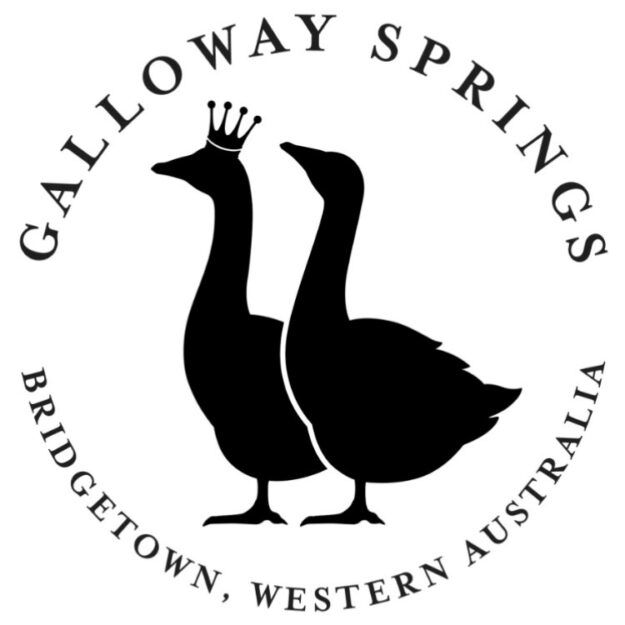Case Study: Galloway Springs
Regenerative Farming in Bridgetown, Western Australia
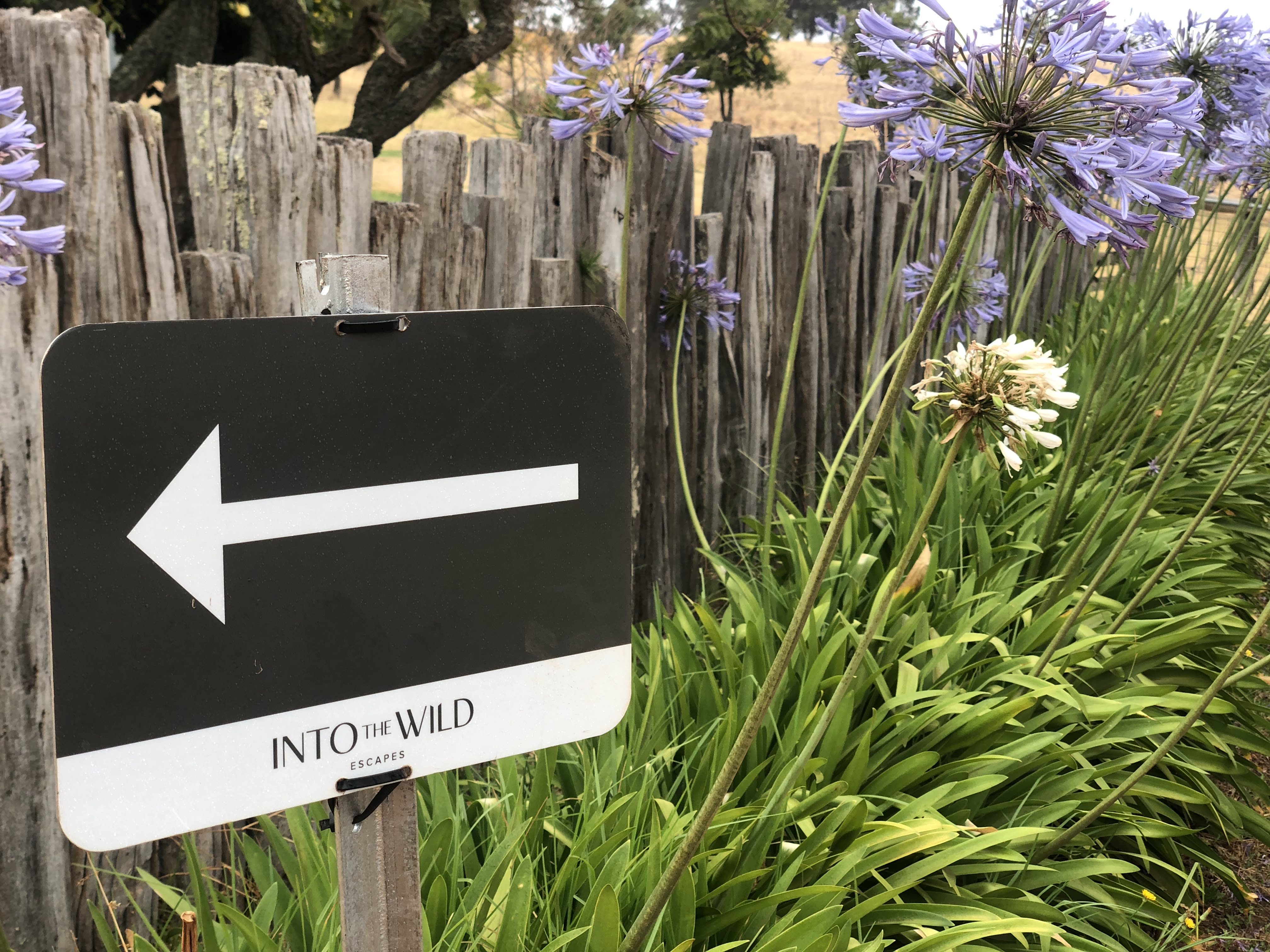
In February 2023, Dr Christine Jones toured Perth and the south west of WA hosting workshops and masterclasses to share her insights and knowledge on building soil health.
The workshops and masterclasses were supported by the Department of Primary Industries & Regional Development in a collaboration between the Lower Blackwood LCDC, Torbay Catchment Group, Perth NRM/RegenWA, Earthwhile Australia, Wilson Inlet Catchment, The Serpentine Jarrahdale Food and Farm Alliance (SJFFA), Oyster Harbour Catchment Group Inc, South Coast NRM, Galloway Springs and the Department of Primary Industries and Development Perth Hills and Swan Valley Project.
Roadshow Case Studies
As part of the roadshow activities, a series of case studies have been developed to share the journeys of local farmers following regenerative agriculture principles. These farmers have candidly shared their experiences - highs and lows - hoping that they can help other farmers along the way.

Galloway Springs Farm Fact File:
- Owners: Murray and Raquel Johnson
- Location: South of Bridgetown in the south west of WA
- Size: 200 acres (150 grazing, some native forest, small orchard + 2 dams)
- Water: reticulated all over the farm from the large dams
- Livestock: cows, sheep, goats, pigs, alpacas bees Marron
- Climate: Winters are cold (June can go below freezing with June temperatures reaching a minimum of -5 degrees) and wet (average rainfall around 150mm in June and July). Summers are hot (can reach around 40 degrees in Dec/Jan/Feb) and dry (less than 20mm in the same months)
Background:
Galloway Springs is a dynamic and diverse farm, growing nutritious food for the local community.
Although Murray has worked in the agricultural industry he hadn't owned or operated a farm before. Raquel was worried she didn't know anything about farming...but realised there was more to regen than traditional farming techniques...
"Murray was the head, but I feel like I am the heart of Galloway Springs" - Raquel
To Murray and Raquel regenerative farming has a unique meaning. It is being part of something big and wonderful - not trying to control it.
Traditional views on farming were initially hard to let go, but the animals won Raquel over early in her regen journey.
"It was a wild and blustery night, and our ewes were lambing. Previously I had thought of them as just 'part of the farm', but that night I knew we had to go out and help them. I realised that we were all in it together. They help the soil, we help them. It was when the true meaning of holistic farming really hit me."
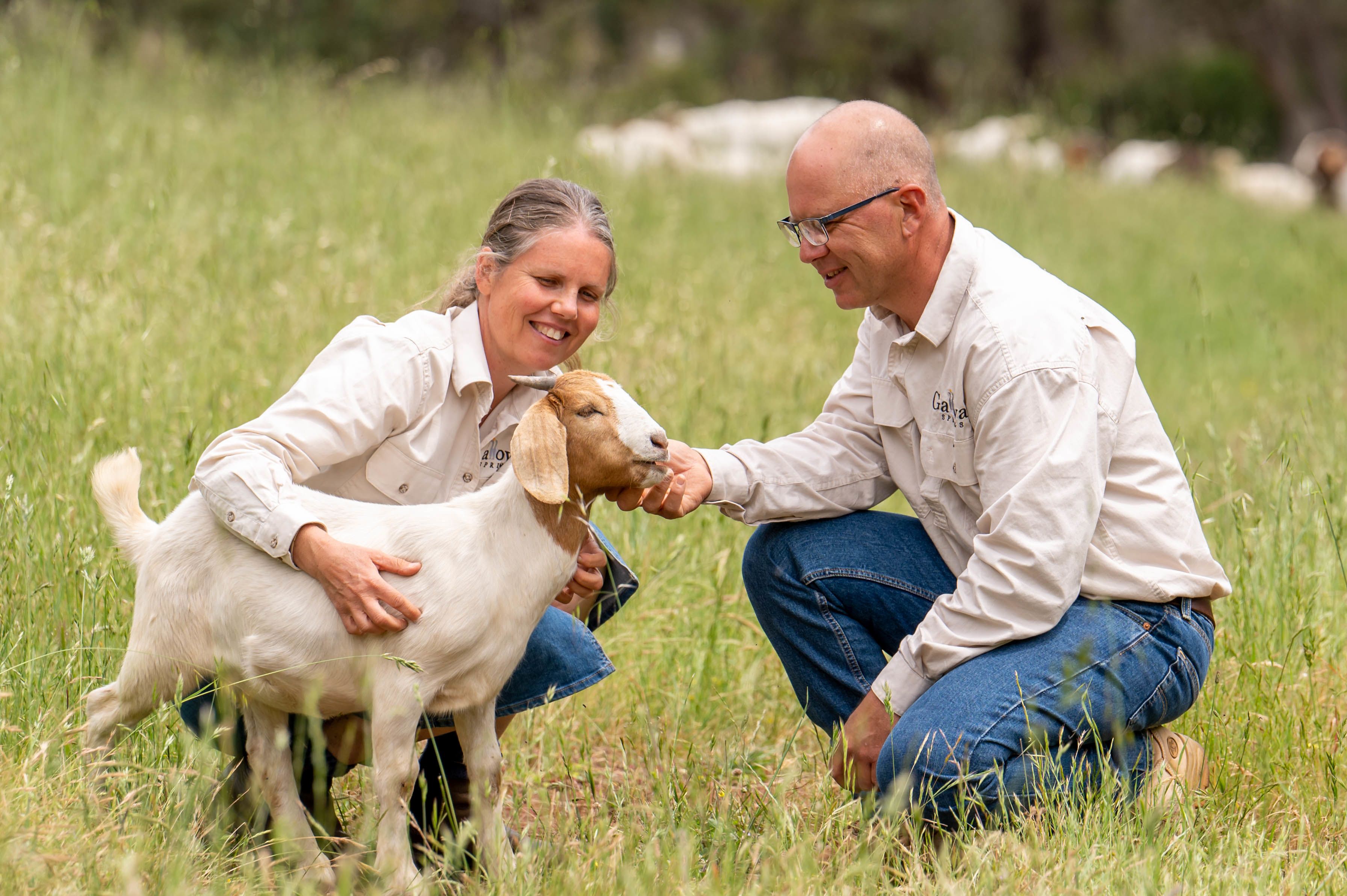
Farm Structure:
As well as a diverse range of livestock, Galloway Springs has some 'stacked enterprises'. People lease land and office space; Quinn is a horticultural gardener, Jesse works with indigenous planting principles, and Rob leases shed space to develop his mechanical guided weeding system.
'Stacking' (a term coined by Joel Salatin) refers to the possibility of adding profitable new farm ventures to an existing operation with minimal added cost. There are numerous efficiencies to be gained, e.g. cost of labour, real estate, equipment and marketing can be shared by multiple enterprises.
Diversification is a key driving factor for the farm too. As well as farming they have invested in the increasingly popular Agrotourism sector. Their pretty 'tiny home' overlooks the dam, and is stylishly furnished to appeal to the city based tourists.
What does Regenerative Agriculture Mean to You?
To the Johnsons, Regenerative Farming is a whole farm system - everything under and above the soil. It includes people, pastures, community and livestock. To them, all of these different personalities and enterprises form a community on and off the farm, which is vital to the emotional and financial survival of the organisation.
Raquel likens traditional farming to the industrial model - a single person with a machine and chemicals, whereas she sees regenerative agriculture as bringing together people with different skills working together towards a bigger picture.
An example is their experience with garlic growing. When another local grower sold out, he happily shared the details of his main buyer with the Johnsons, allowing them to sell significant quantities of their crop and giving a big boost to their business.
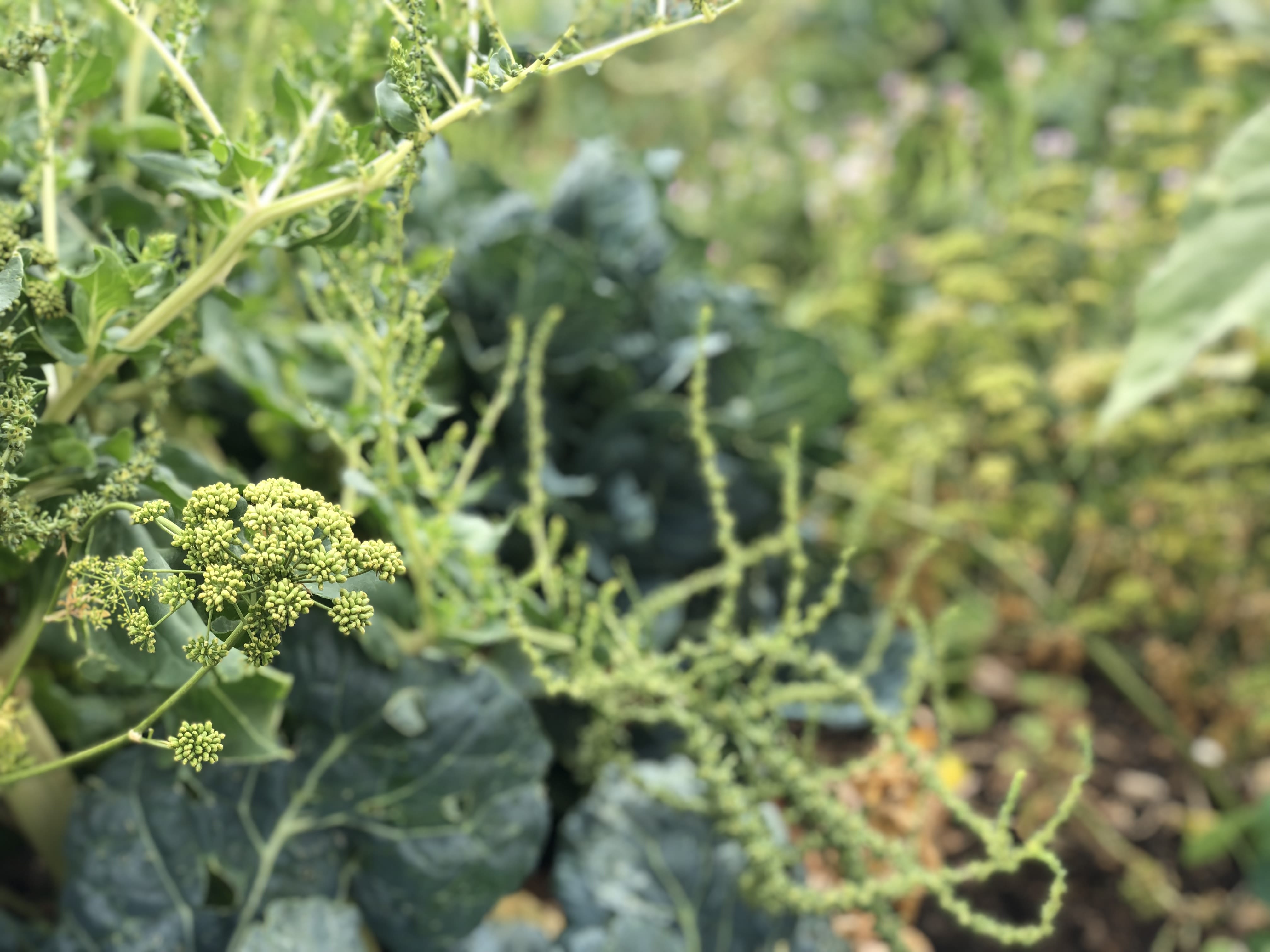
Quinn's Garden
Quinn's Garden
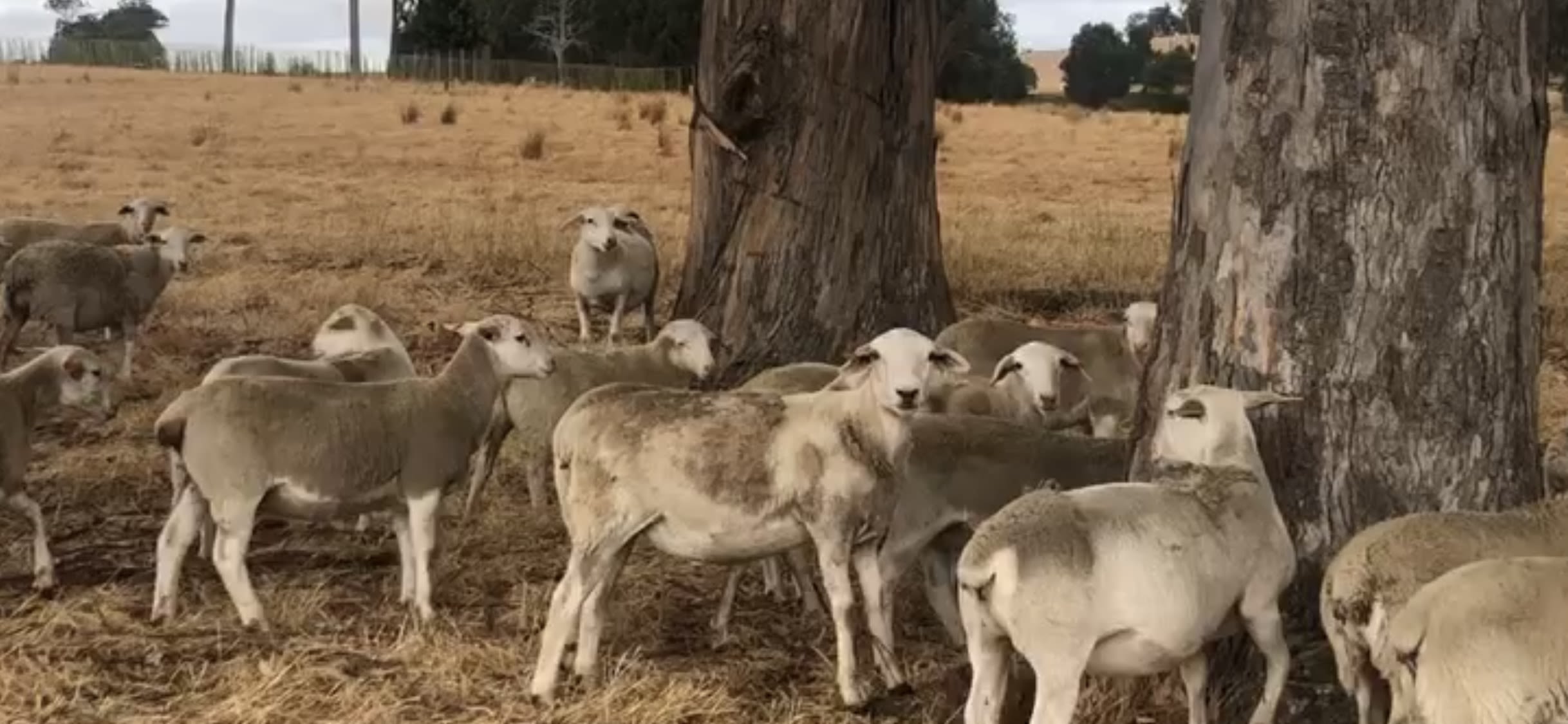
Ewes on the farm
Ewes on the farm
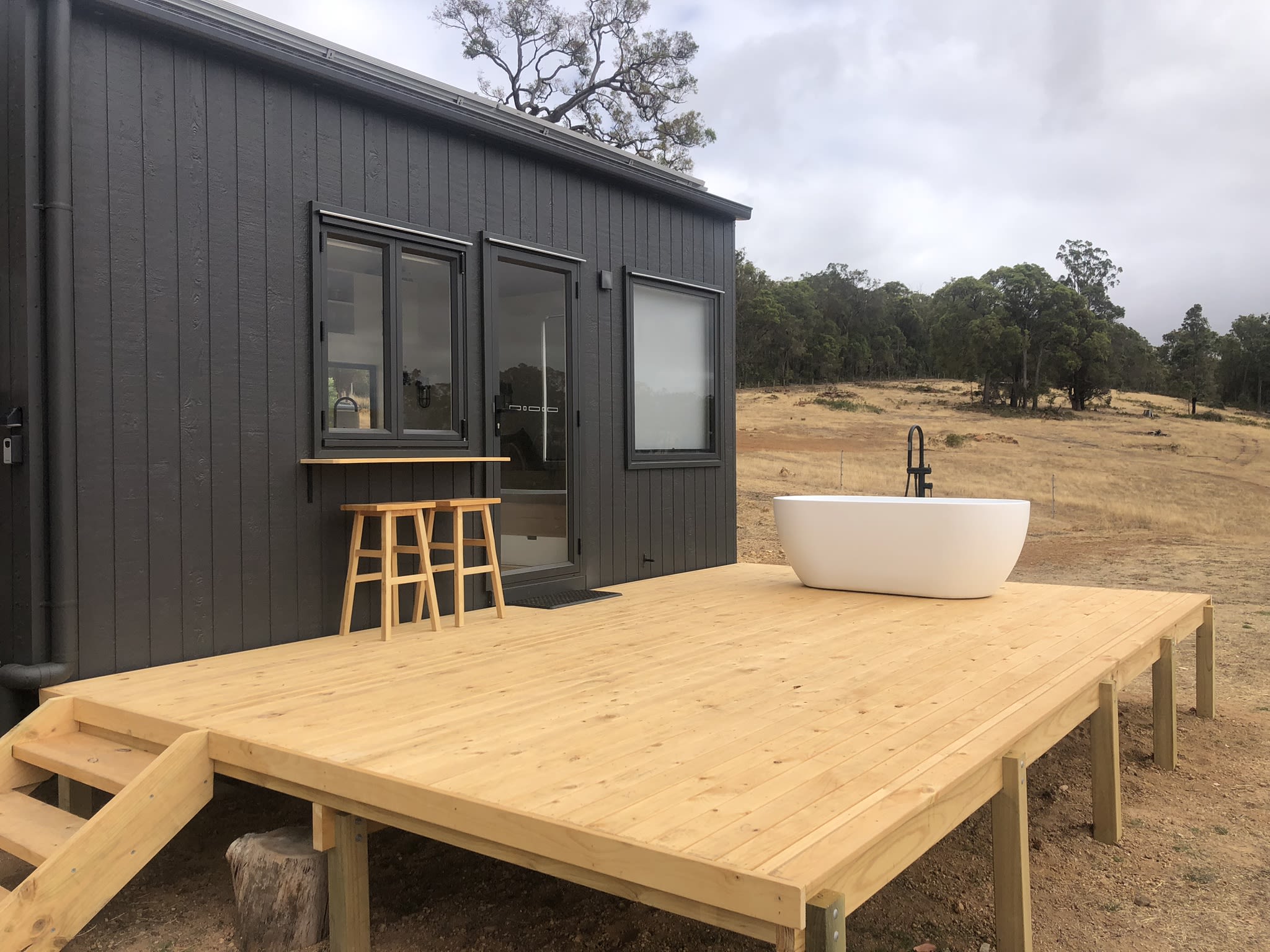
The 'Tiny Home' overlooks the dam
The 'Tiny Home' overlooks the dam
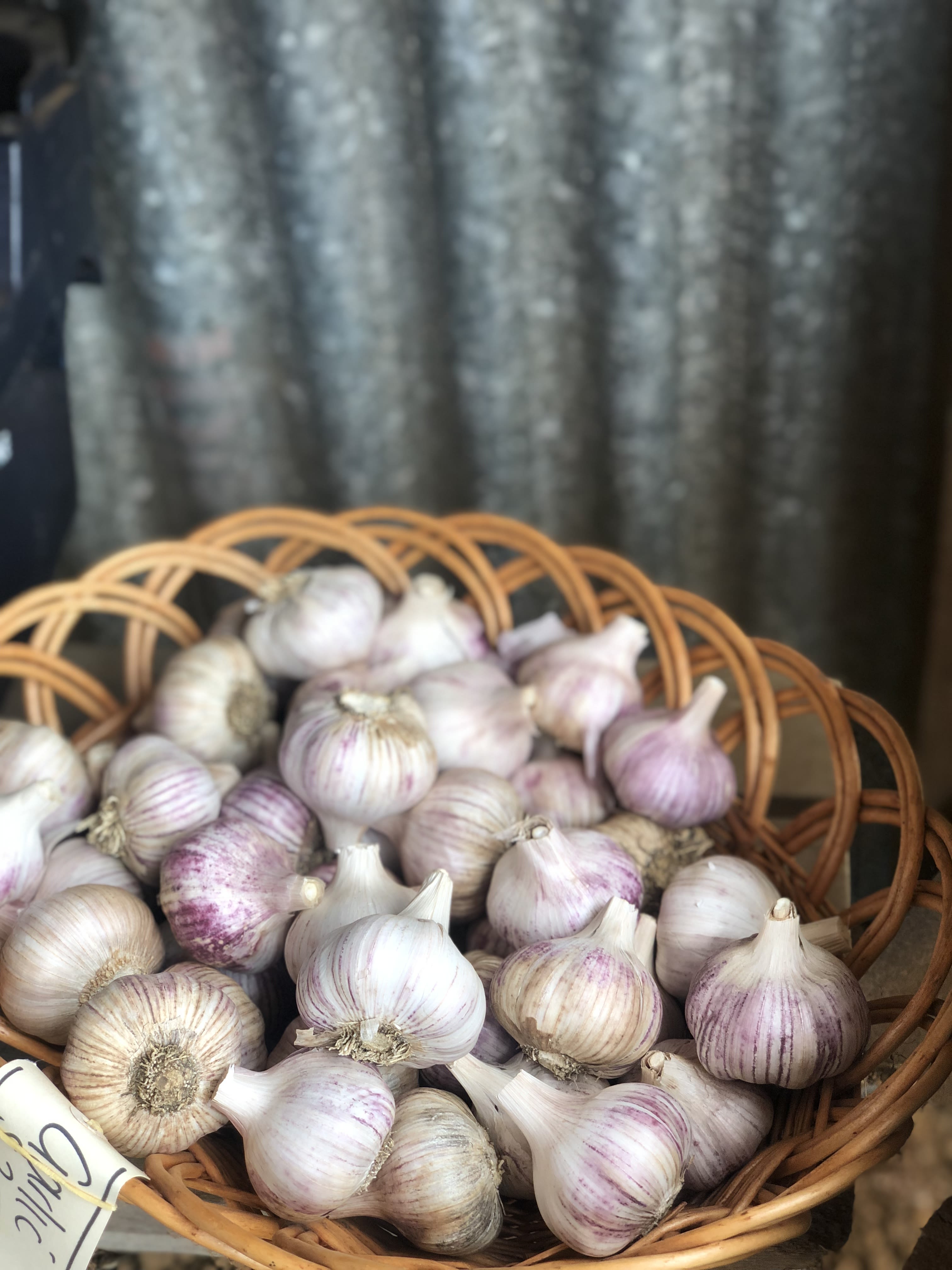
Garlic grown on the farm
Garlic grown on the farm
Emily's Chickens
Murray's vision was always to have the family together and working on the farm.
Emily has always loved the farm, and when she finished school was keen to run her own business there. And what better choice than chickens!
But as Raquel points out, it took a local community of support - part of the Regen Ag philosophy - to help Emily's Pasturised Poultry dream come true.
That community included a local internship with Southampton Homestead (a pasture raised poultry farm), Goodies Farm's grains and pulses, family support with developing her coops and feeding systems and local shoppers keen to buy her locally raised chickens.
Emily's chickens are now being sold through 'Dirty Clean Food' a local regen farming food delivery service.
Quinn's Horticulture
Quinn is a horticulture specialist who leases a segment of the farm to nurture his own venture. He specialises in organic produce, using extensive cover crops to encourage nutrition dense fruits and vegetables. and additional crops to support the nutrition needs of the livestock on the farm.
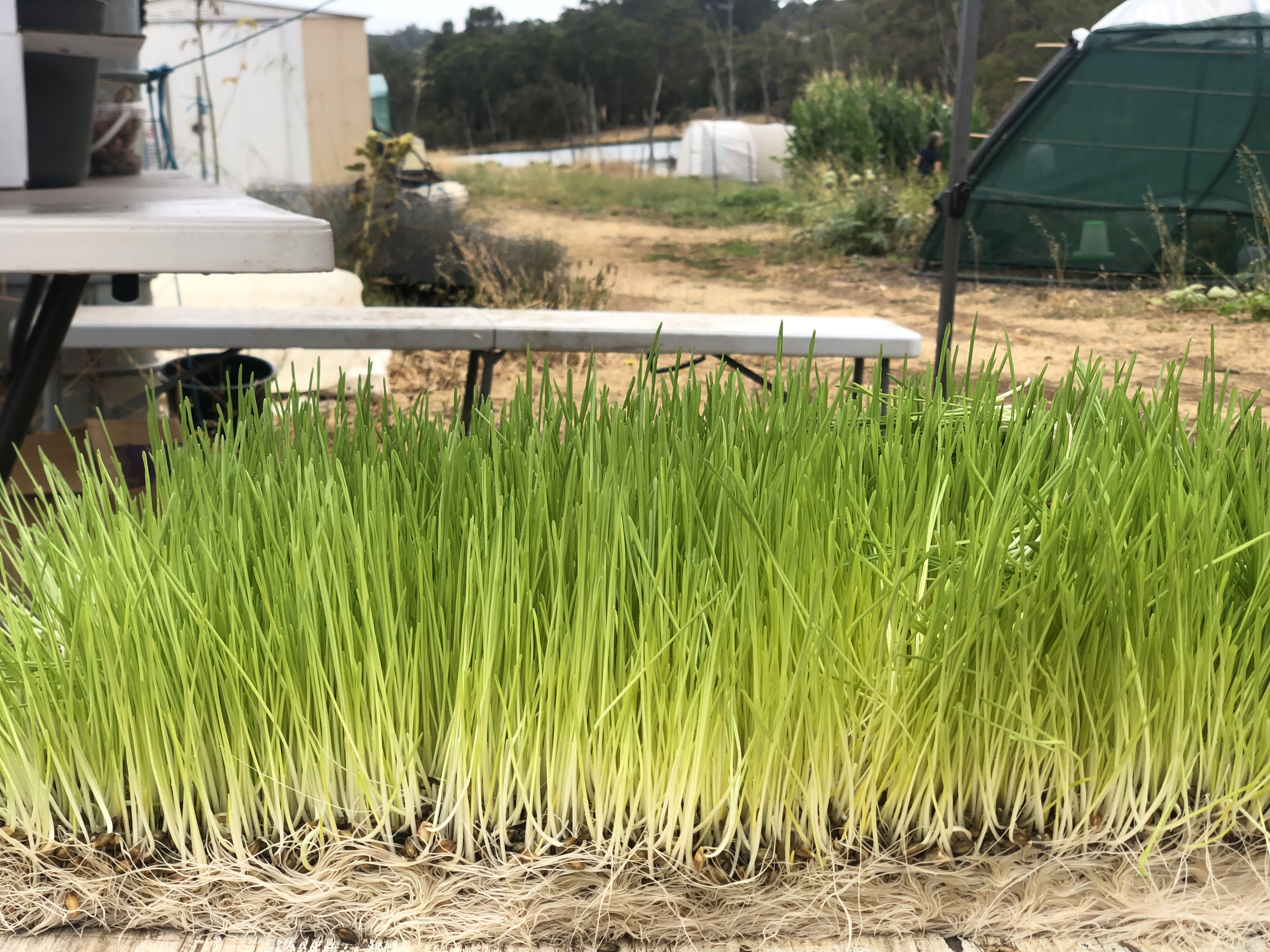
Nutritious greens grown on the farm for the pigs
Nutritious greens grown on the farm for the pigs
Farm Shop
The farm shop stocks fruit and vegetables fresh from the farm - and have started to take on produce from other farmers too. Packed with old world charm and nutritious goodies (as well as heirloom seeds collected straight from the farm) the shop has become a local favourite.
"I feel like the Farm Shop gets people excited about food and their food health." - Raquel
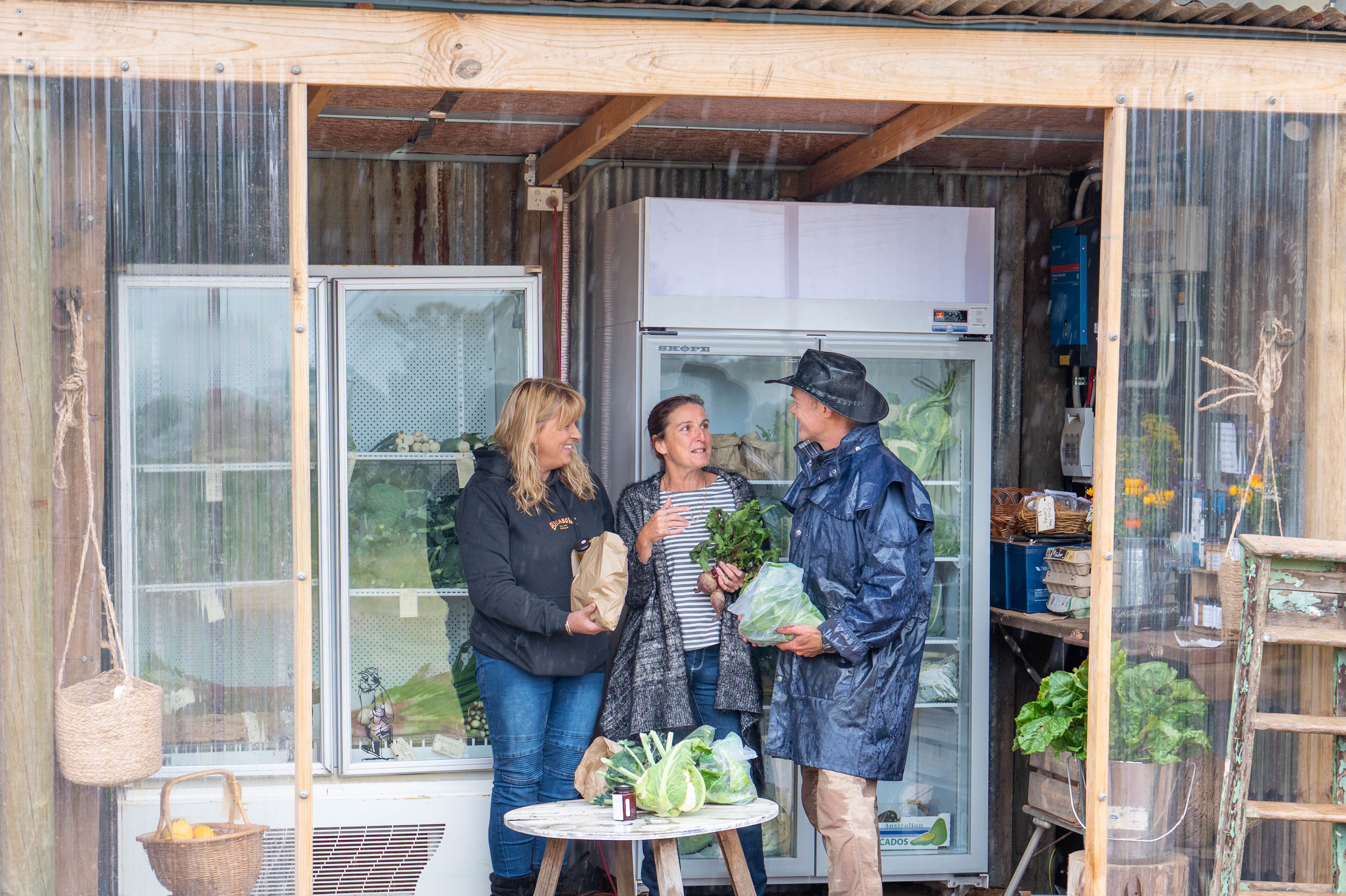
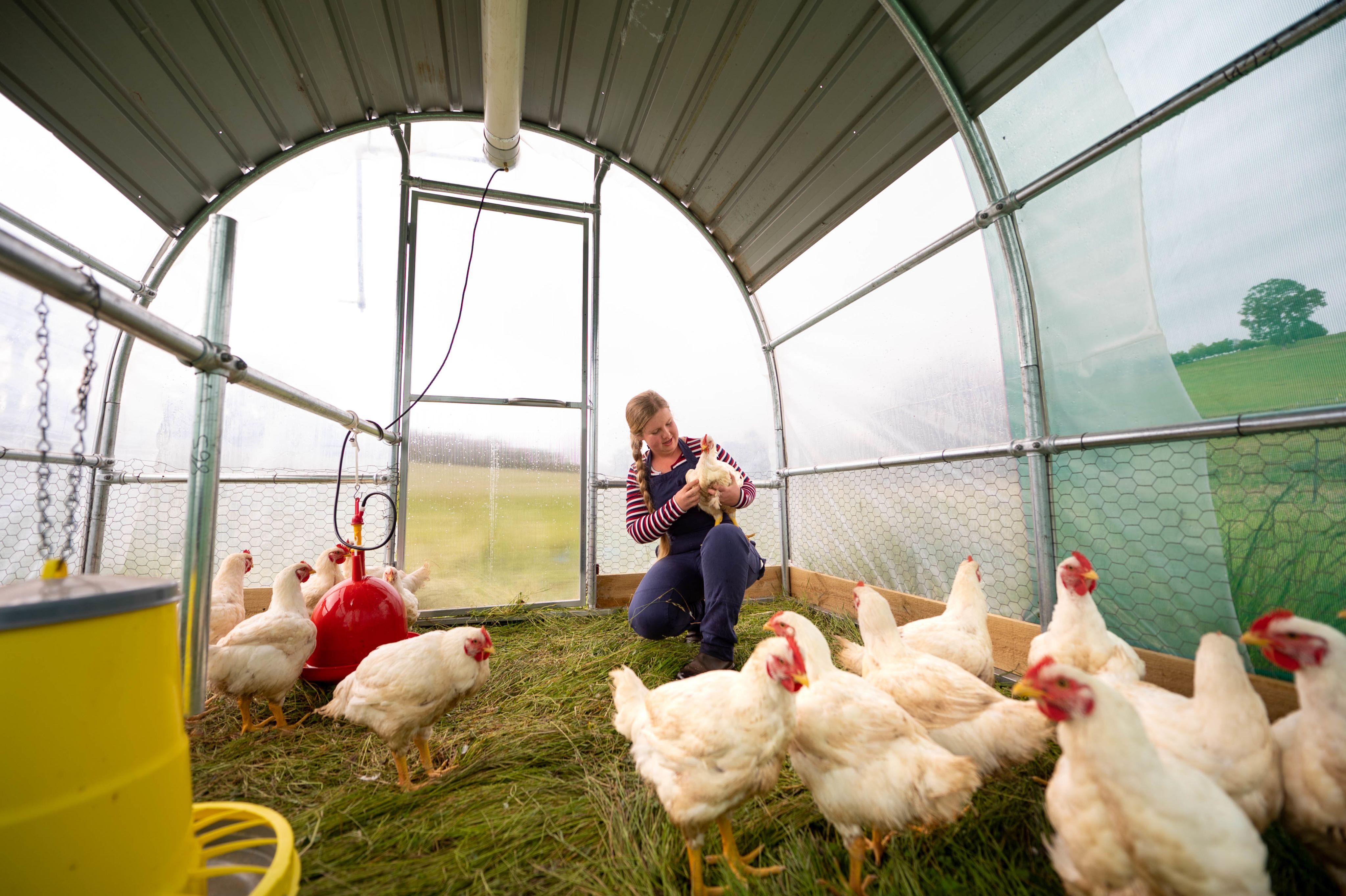
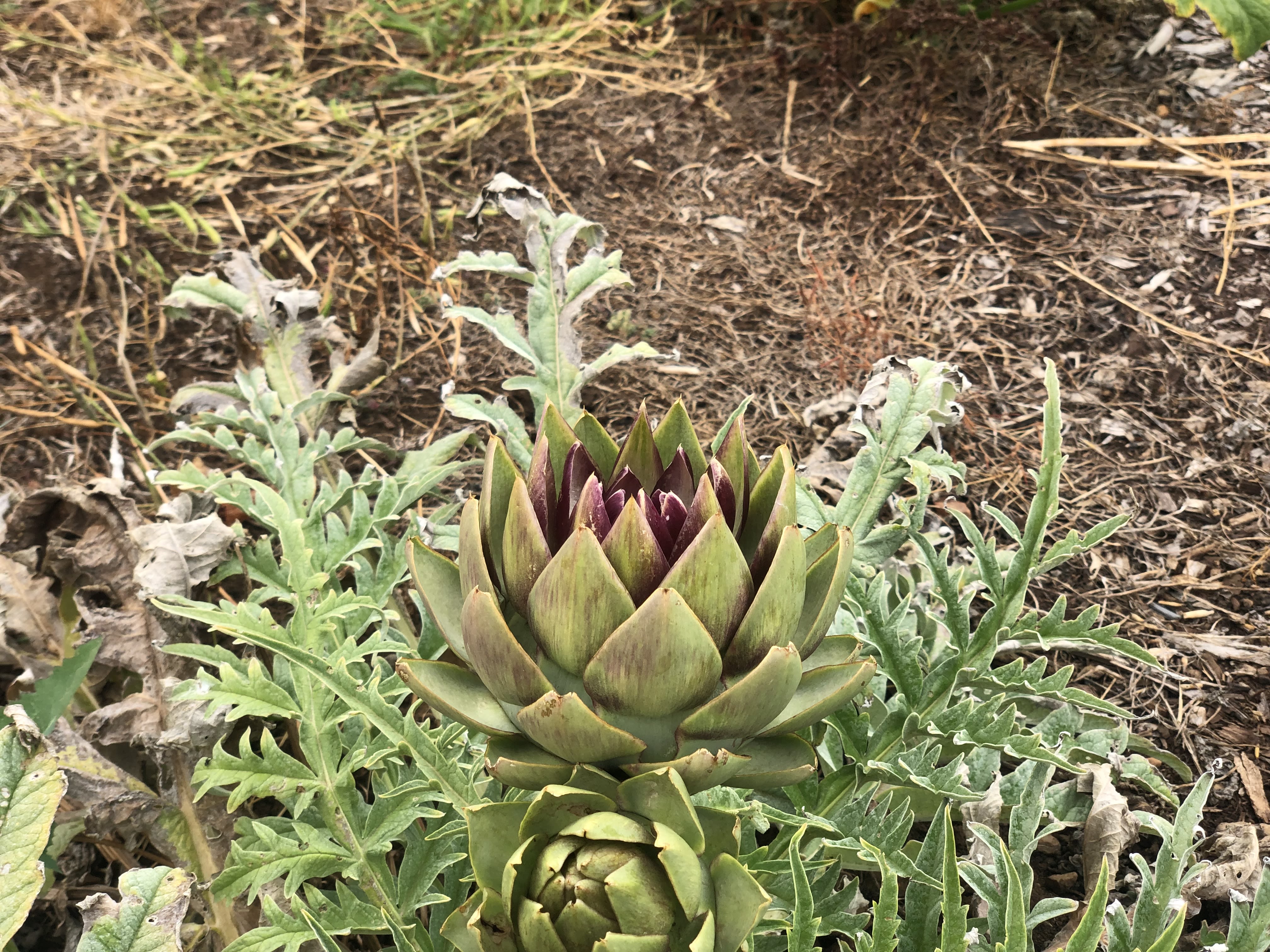
Quinn's artichokes
Quinn's artichokes
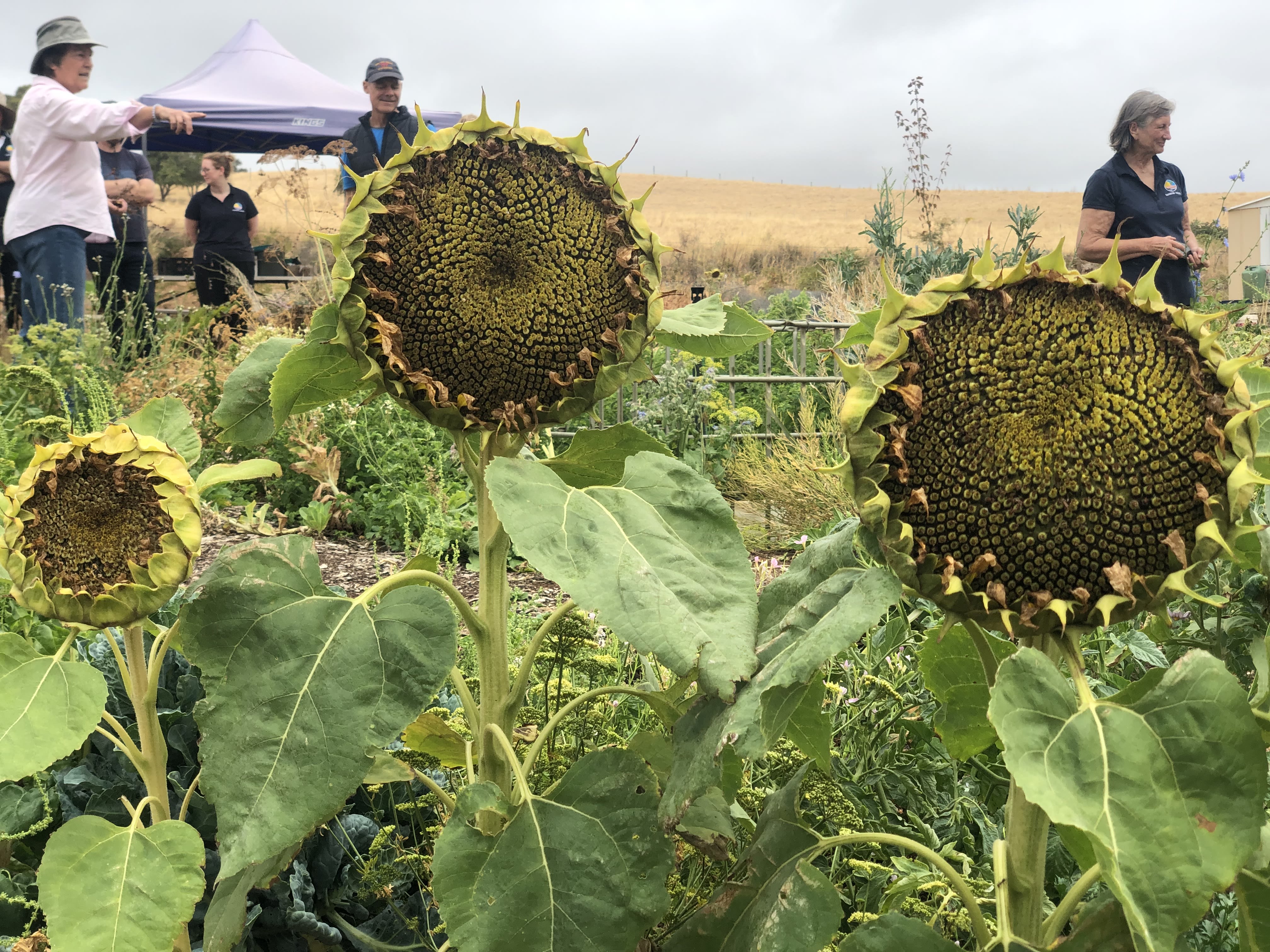
Sunflowers from Quinn's garden
Sunflowers from Quinn's garden
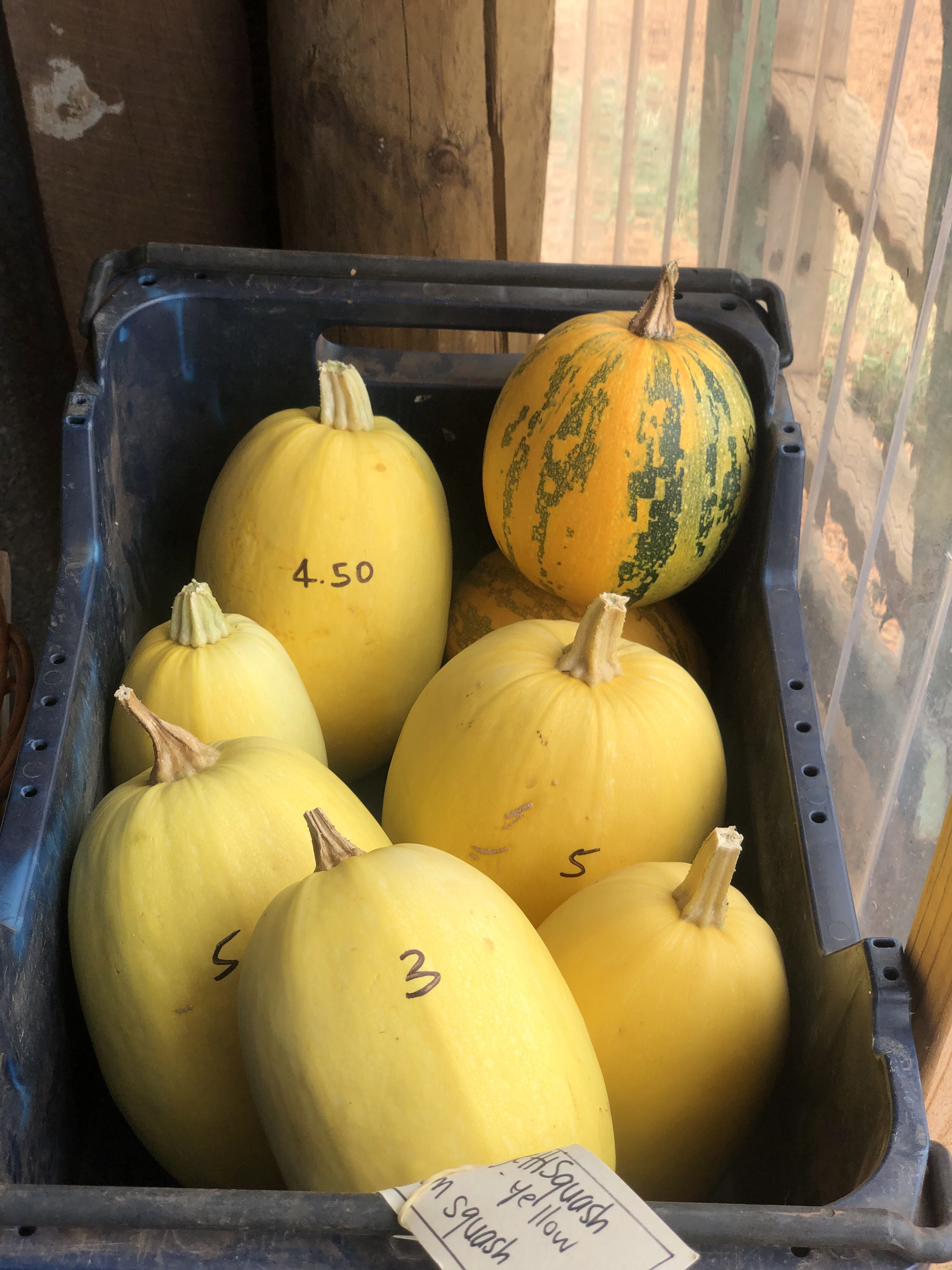
Produce sold at the Farm Shop
Produce sold at the Farm Shop
Goals:
Sharing their story
The Johnsons believe that education is vital to the success of the regenerative agriculture evolution. They believe that many people have become disconnected from the food production system, and their goal is to share their story, reminding people that the health of the soil is the foundation for healthy animals and healthy humans.
Agrotourism, encouraging visitors to their farm, welcoming new enterprises onto their land and sharing their nutritious produce are just some of their strategies to reach that goal.
Greener pastures...
Galloway Springs is currently struggling against an annual pasture cycle. The long, dry summer means there's no green growth, and the soil biology suffers. The goal is to encourage a mix of perennial grasses to grow over that season, improving the soil quality and moisture retention. Ultimately, their vision is for rolling green pastures throughout the year...but the challenge is working out the best way to get there!
Diversity
More plants, more diversity and building soil health is a guiding principle for the Johnsons. Committed to the regenerative agriculture journey, their goal is to build a farm that is resilient enough to grow year-round crops, sustain healthy animals and has a long term future as a commercial success.
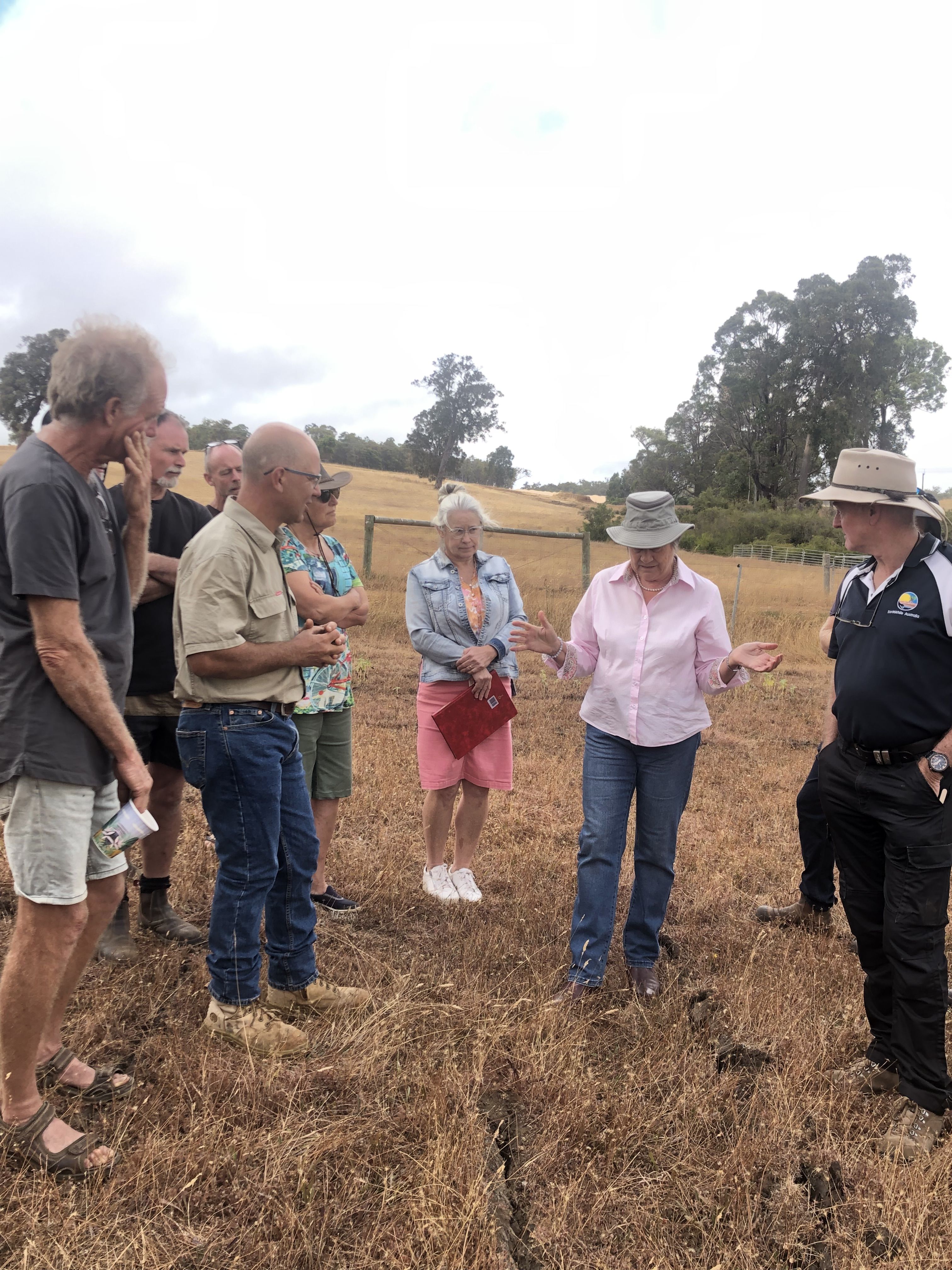
Galloway Springs hosted a workshop with Dr. Christine Jones
Galloway Springs hosted a workshop with Dr. Christine Jones
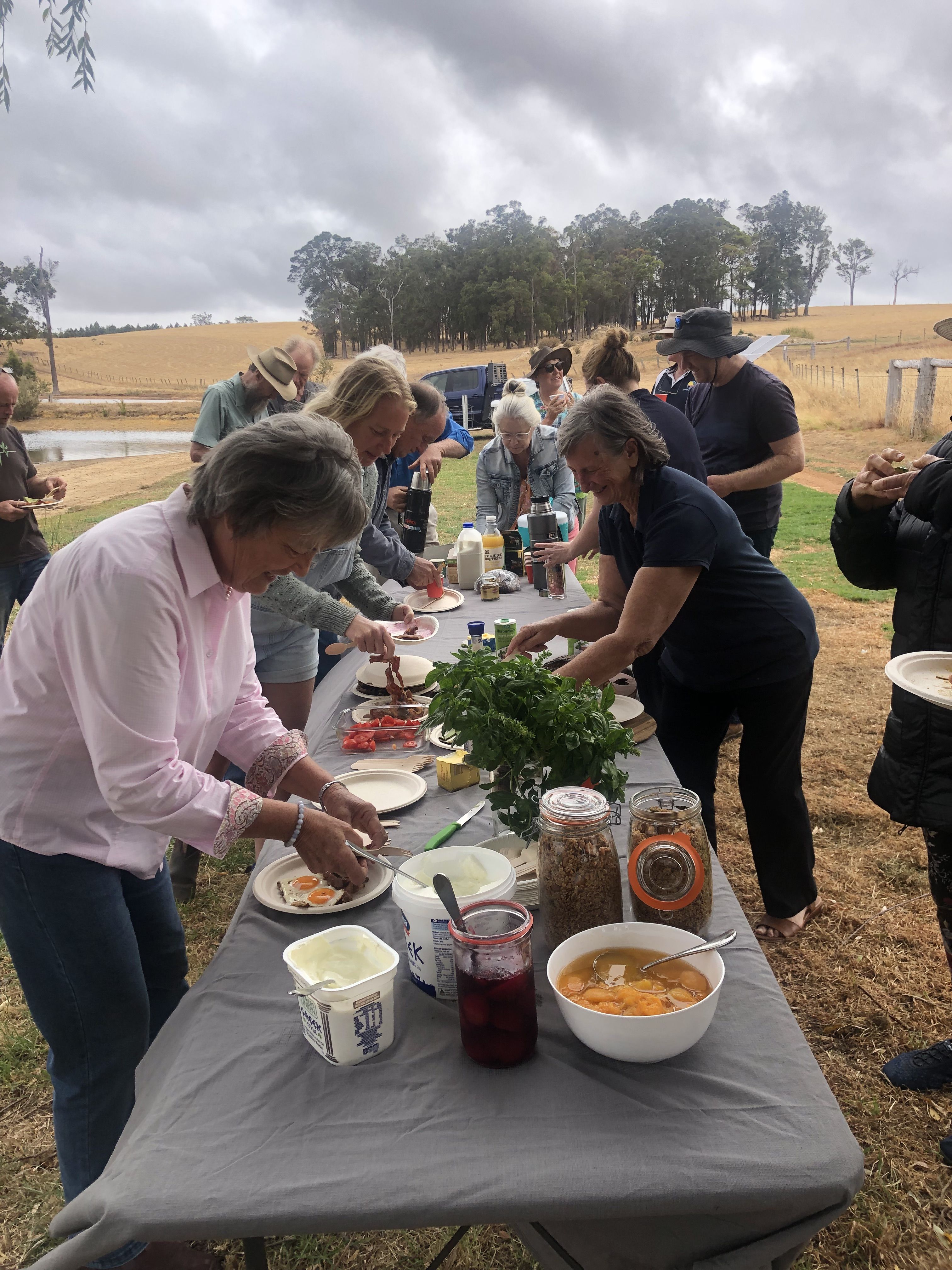
Welcoming other landholders to share experiences, stories and produce
Welcoming other landholders to share experiences, stories and produce
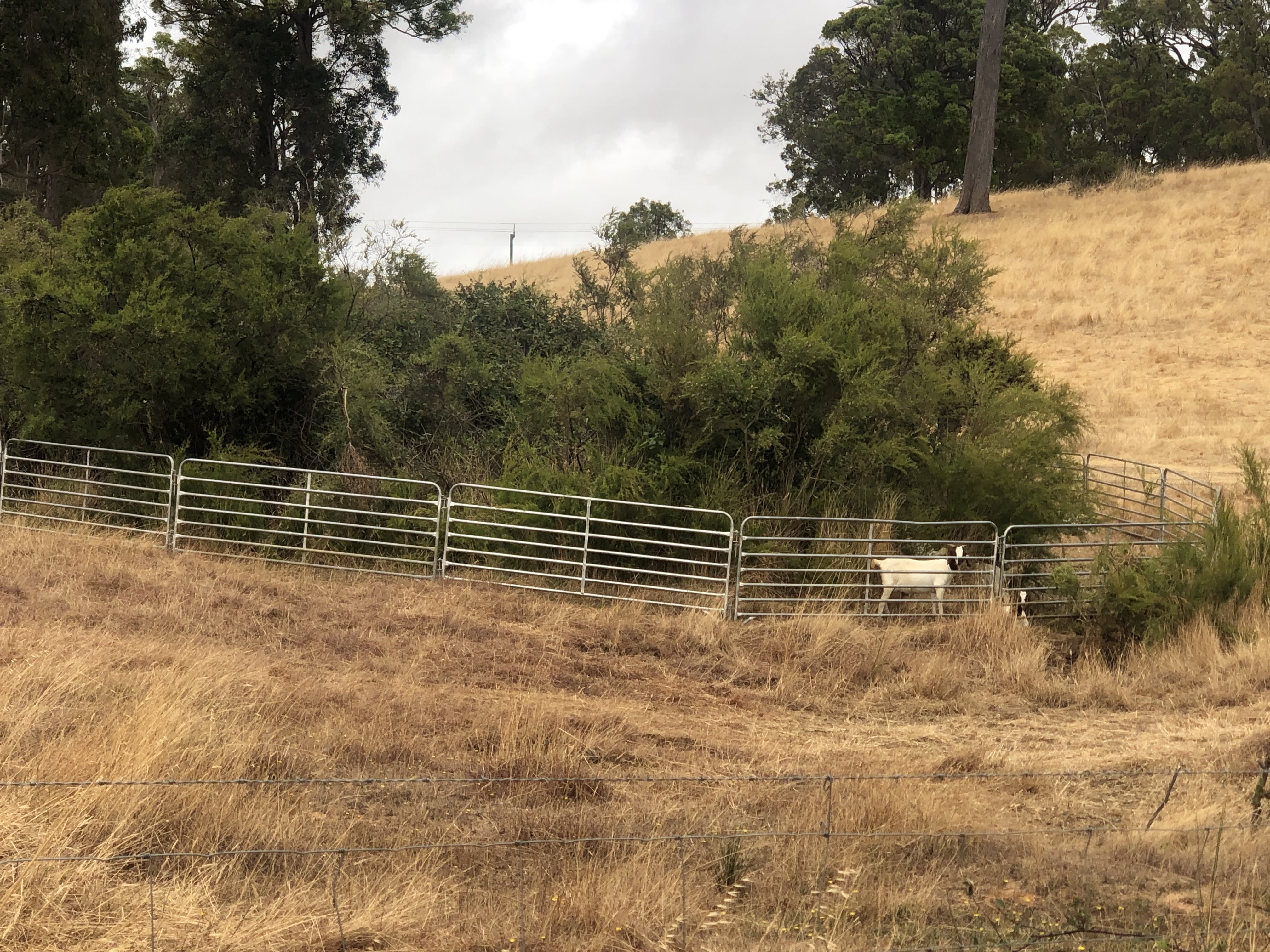
Struggling with annual pastures
Struggling with annual pastures
Challenges
Financial Security
Galloway Springs has had financial support for their business in Perth, and although both Murray and Raquel now work full time on the farm, they advise that starting the journey without that backing would be a significant challenge. Being profitable on a small scale is a significant hurdle, but they are working on some strategies...
Focus on the right things
Sometimes, things can get overwhelming. Stay focused, and stick to the plan. Many things may seem like great ideas, but remember to stick with the plan that you know will succeed.
Advice
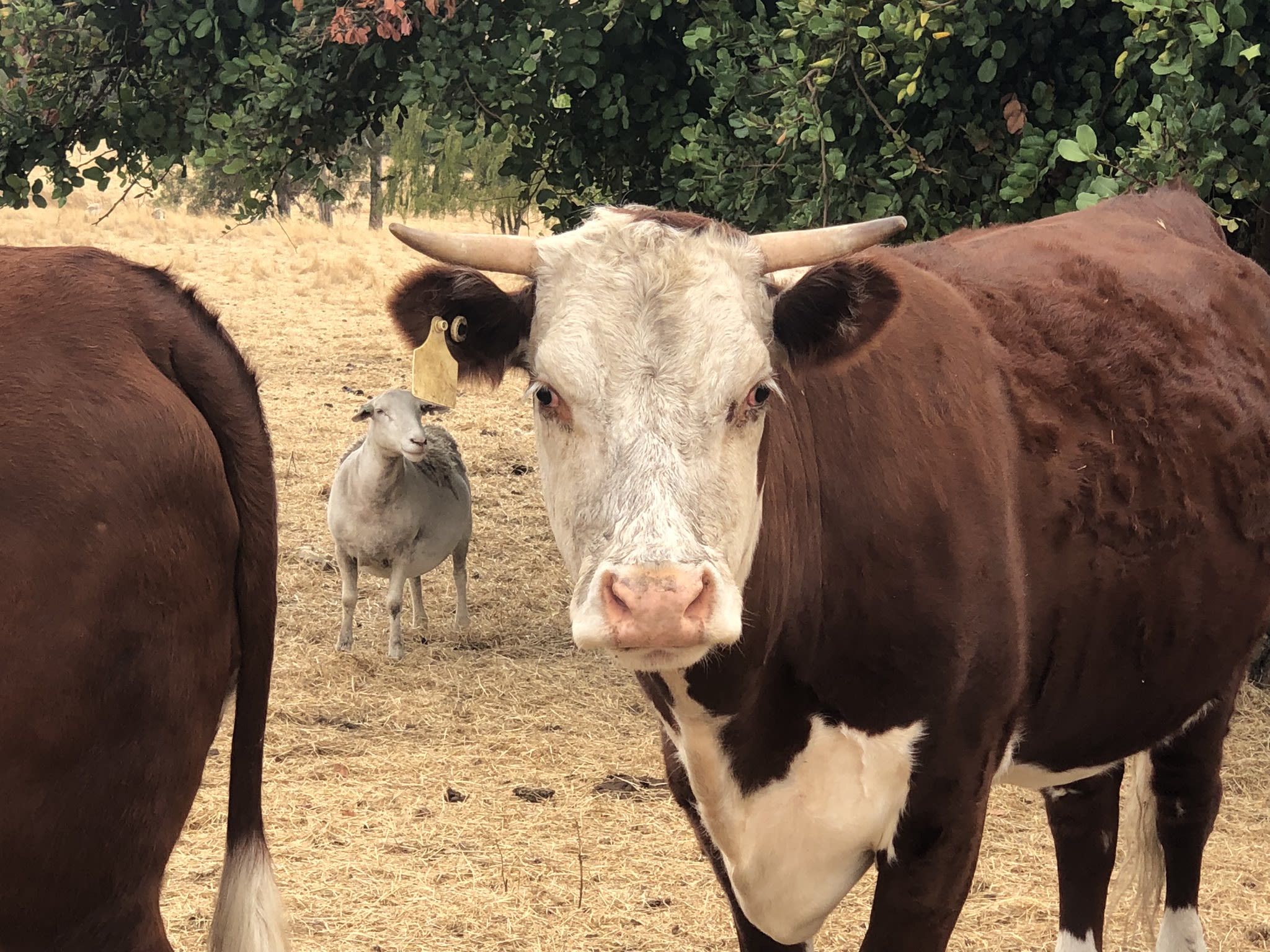
Whole Farm Approach
Back in 2020 Murray and Raquel did a Holistic Farm Management Course. For them, this was a game-changer. It made them look at the entire farming enterprise as a whole system - people, pastures, livestock, water, community, everything above and below the soil. This was the framework that helped them drive a successful plan of action and avoid being pulled in different directions.
Read and Learn
Podcasts, audiobooks, events, networking - do everything possible to learn about regenerative agriculture. You may not agree with it all, but there are so many experts out there with genuine experience and advice it's well work seeking out their material. Some favourites from Murray and Raquel are listed below.
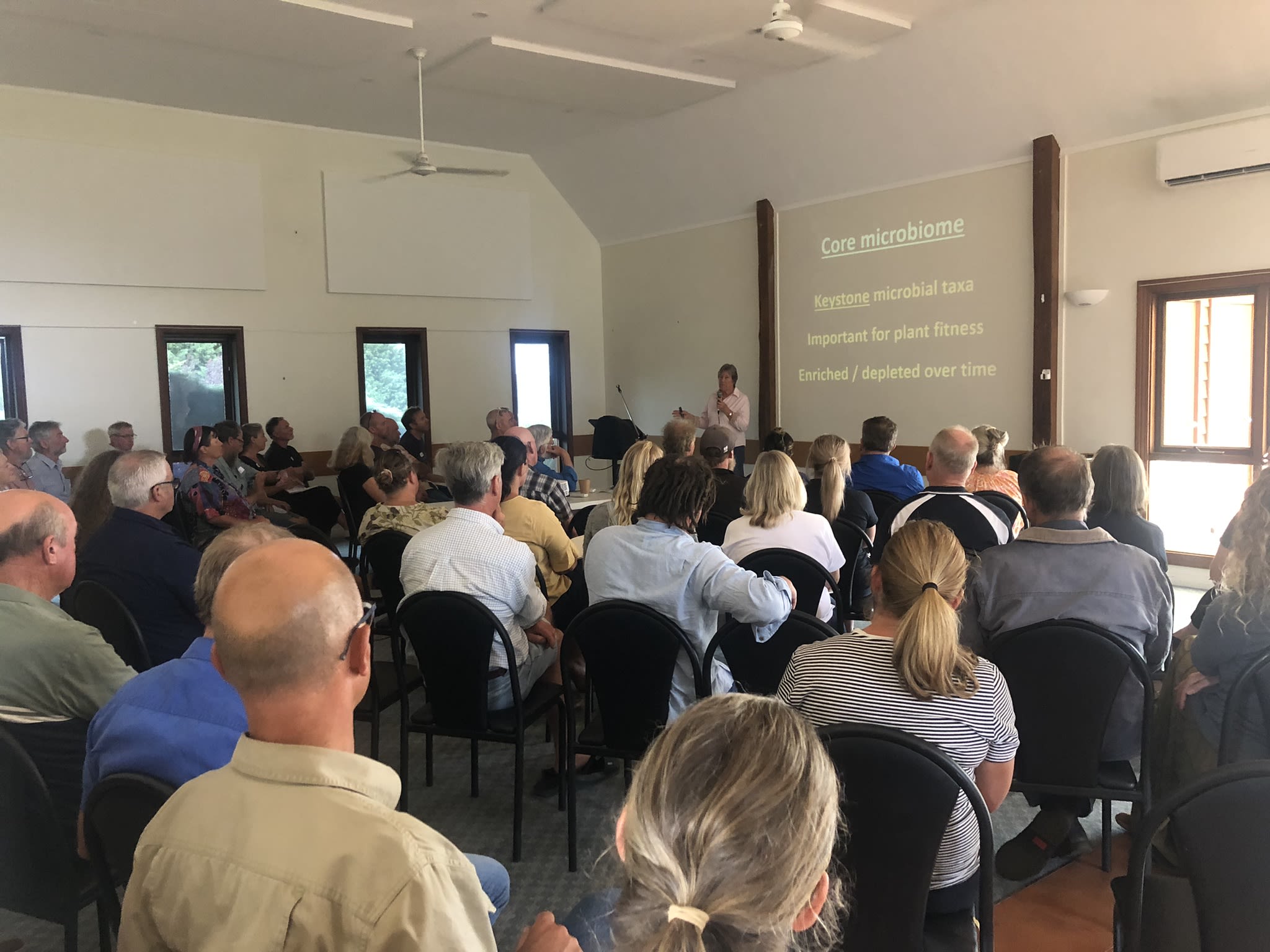
Find Your Network
The best way to translate the knowledge into action is with the help of others who have done it before. Murray and Raquel rely heavily on their growers and farmers groups to share ideas and experiences, and build on each other's knowledge and learning.
Listening and Reading Recommendations
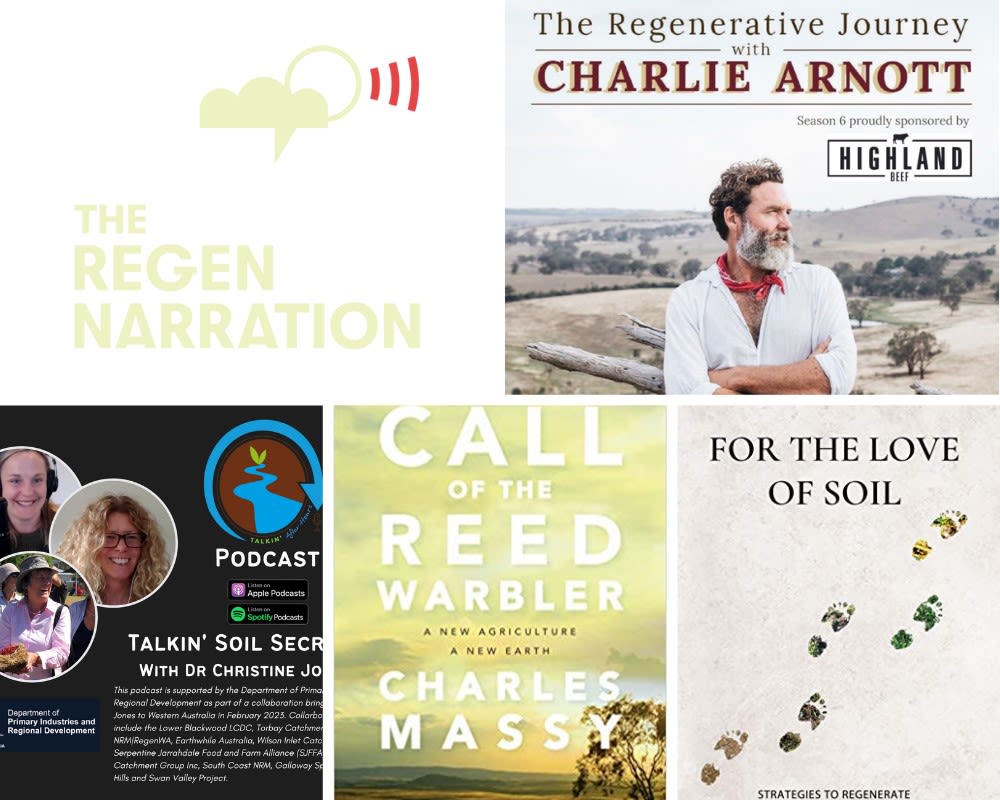
The Regenerative Journey - Charlie Arnett (podcast)
Regennarration - Anthony James (podcast)
For the Love of Soils - Nicole Masters (book)
Call of the Reed Warbler - Charles Massey (book)
Webinars and podcasts by Dr. Christine Jones
Talkin' After Hours - Lower Blackwood LCDC (podcasts/webinars)
Resilience and Diversity is the Key to Success
These are the two vital assets to success for a small regenerative farming enterprise. The 'stacked farming' system that the couple has created encourages multiple income streams so the farm has more flexibility in it's delivery of profit focused farm goods.
And however tough the journey get, she believes that small is beautiful. She's determined that Galloway Springs won't be smothered by big industrial systems. Instead of getting bigger, she believes duplicating successful smaller systems, working as a community, sharing skills, machinery, experiences and support is the new way to farm.
Real people and real food are at the heart of Galloway Springs
"People tell us we are living the dream. I think in essence what they are envying is our connection to the land, food and community. And if that's what they are envying then we are living the dream. We have all of these in abundance." - Raquel
What's Next?
Galloway Springs will continue to grow nutritious food for the community, and welcome the positive energy that other people bring to the farm.
The Johnsons believe that consumers will demand more and more regeneratively and organically grown food as the health and wellbeing benefits filter into the mainstream. In turn, will drive change in the food production systems. They believe this grass roots action will kick-start the change - although politics and government support may come later.
In the meantime they will stick to their vision of a family led farm that supports a healthy and fulfilling lifestyle.
Additional Resources
Talkin' After Hours Webinar: Restoring Farmland and Soils in our Mediterranean Climate
Talkin' After Hours Webinar: The Fundamentals of Agricultural Soils
Talkin' After Hours Webinar: Profit, Productivity and NP
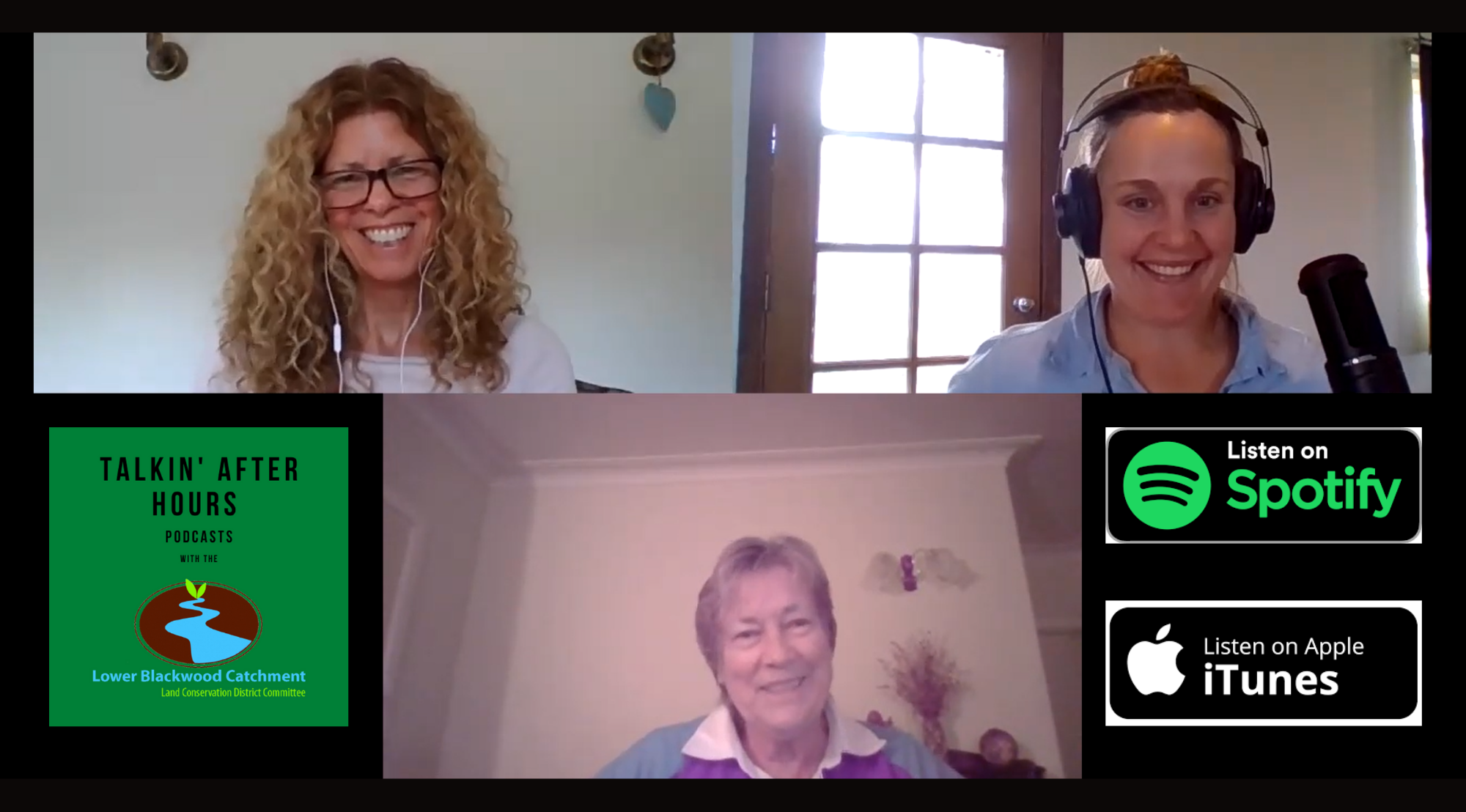
A Conversation with Dr Christine Jones Jo & Kate chat to Dr. Christine Jones about 'Light' Farming & the power of photosynthesis to regenerate our soils, restore water balance to our landscapes, & enable our farmlands to have living ground cover year round.
A Conversation with Dr Christine Jones Jo & Kate chat to Dr. Christine Jones about 'Light' Farming & the power of photosynthesis to regenerate our soils, restore water balance to our landscapes, & enable our farmlands to have living ground cover year round.
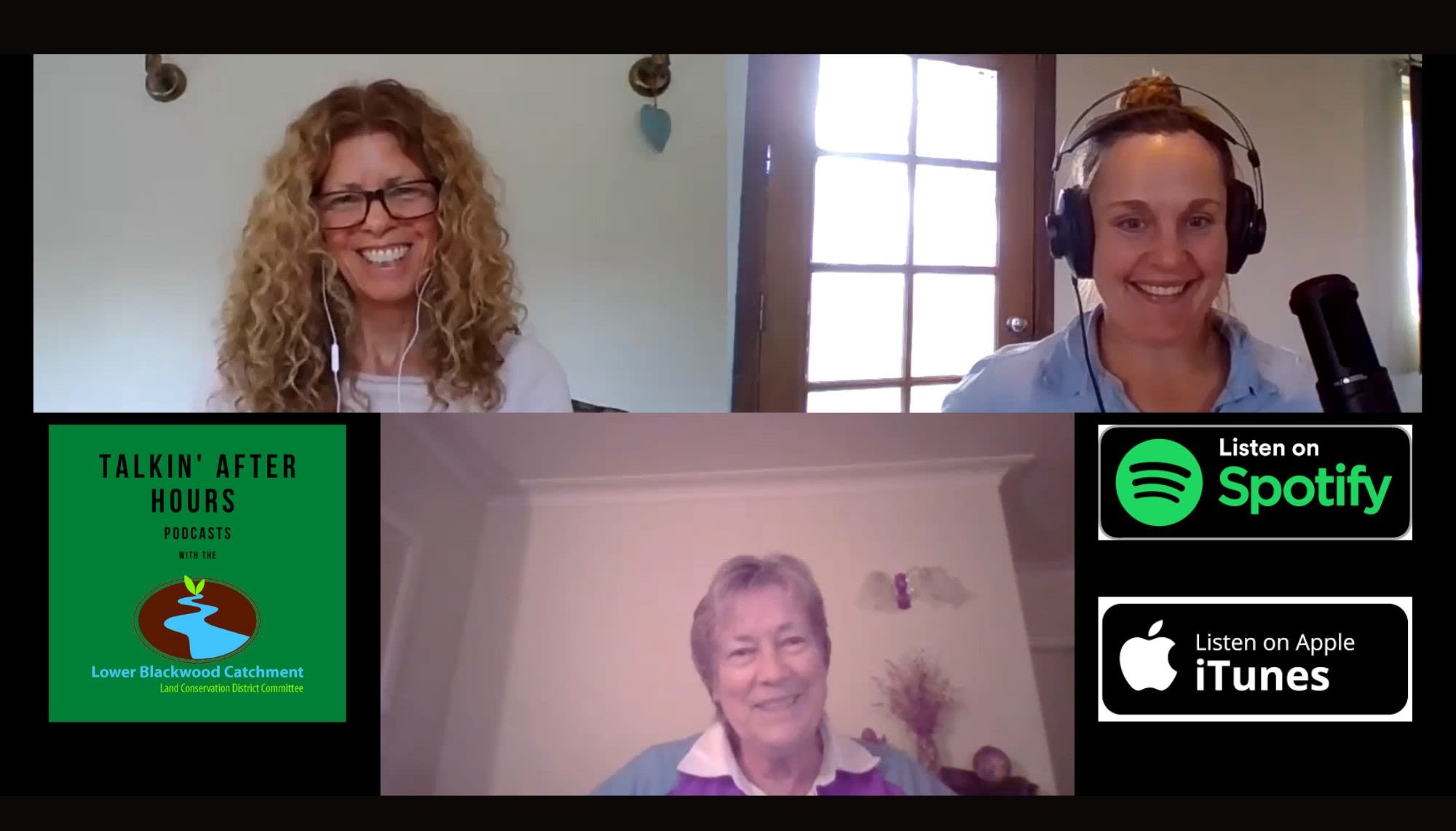
On Farm Biodiversity & Soil Health with Dr Christine Jones In this episode Jo & Kate talk to internationally renowned and highly respected groundcover and soils ecologist Dr Christine Jones about biodiversity on the farm, why it’s important and how it can impact on soil health.
On Farm Biodiversity & Soil Health with Dr Christine Jones In this episode Jo & Kate talk to internationally renowned and highly respected groundcover and soils ecologist Dr Christine Jones about biodiversity on the farm, why it’s important and how it can impact on soil health.
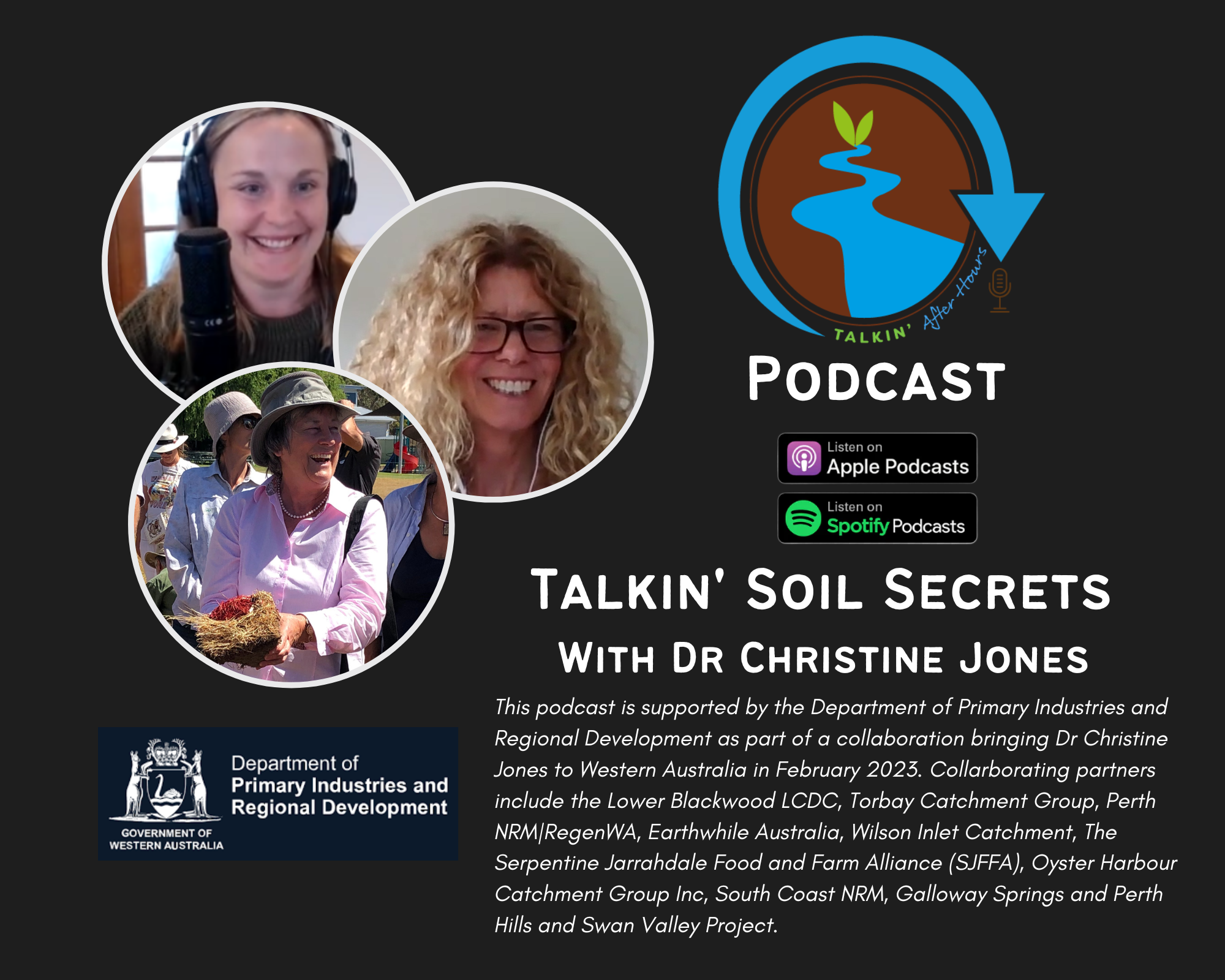
Talkin' Soil Secrets with Dr Christine Jones In this Talkin' episode Jo & Kate talk with internationally renowned soils ecologist Dr Christine on the secrets that make healthy soils tick and the soil as a living system - including a dive into the ‘liquid carbon pathway’ – what it is, why we need it, how to help it and how to avoid hindering it. This podcast is supported by the Department of Primary Industries and Regional Development as part of a collaboration bringing Dr Christine Jones to Western Australia in February 2023.
Talkin' Soil Secrets with Dr Christine Jones In this Talkin' episode Jo & Kate talk with internationally renowned soils ecologist Dr Christine on the secrets that make healthy soils tick and the soil as a living system - including a dive into the ‘liquid carbon pathway’ – what it is, why we need it, how to help it and how to avoid hindering it. This podcast is supported by the Department of Primary Industries and Regional Development as part of a collaboration bringing Dr Christine Jones to Western Australia in February 2023.
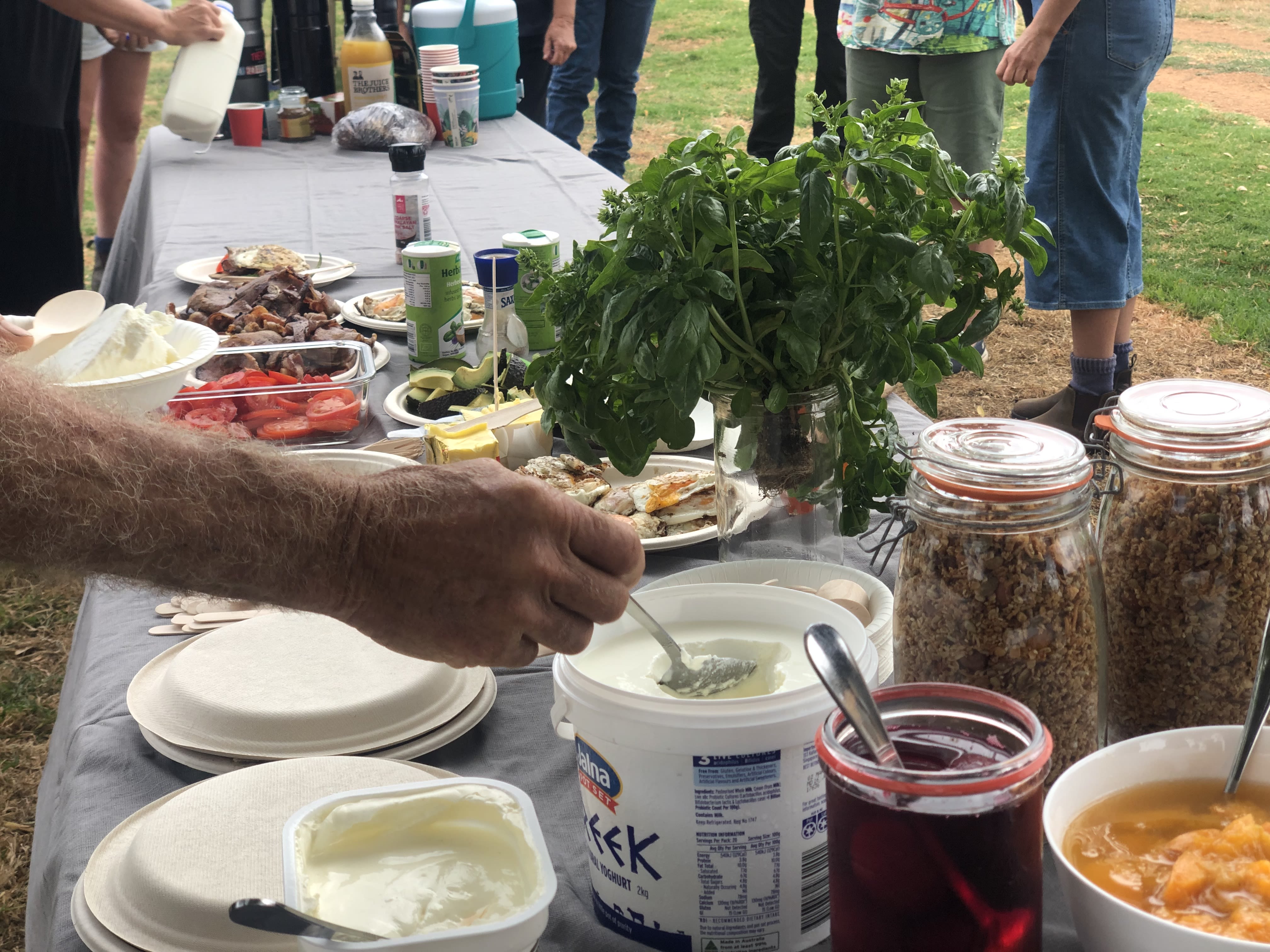
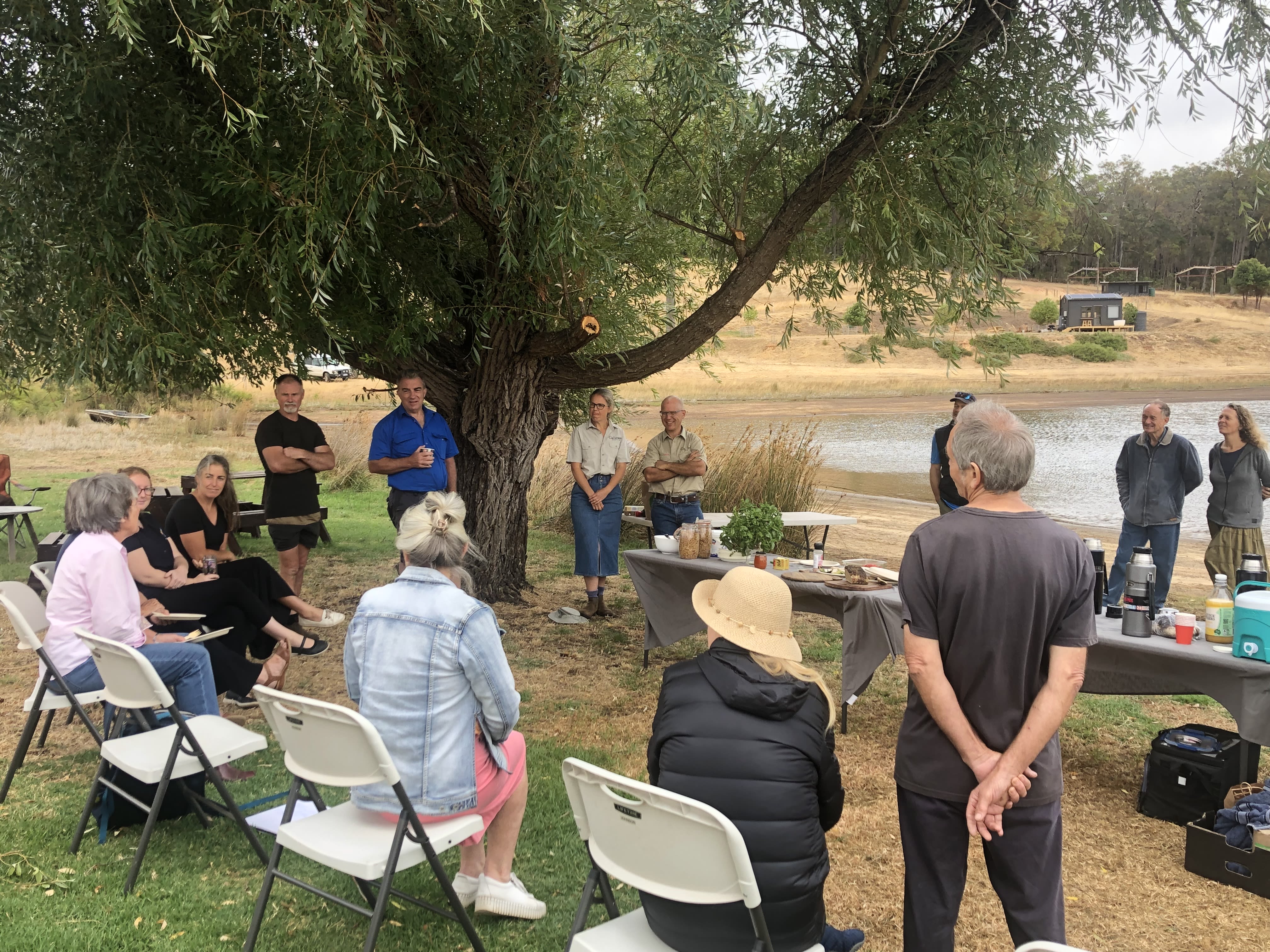
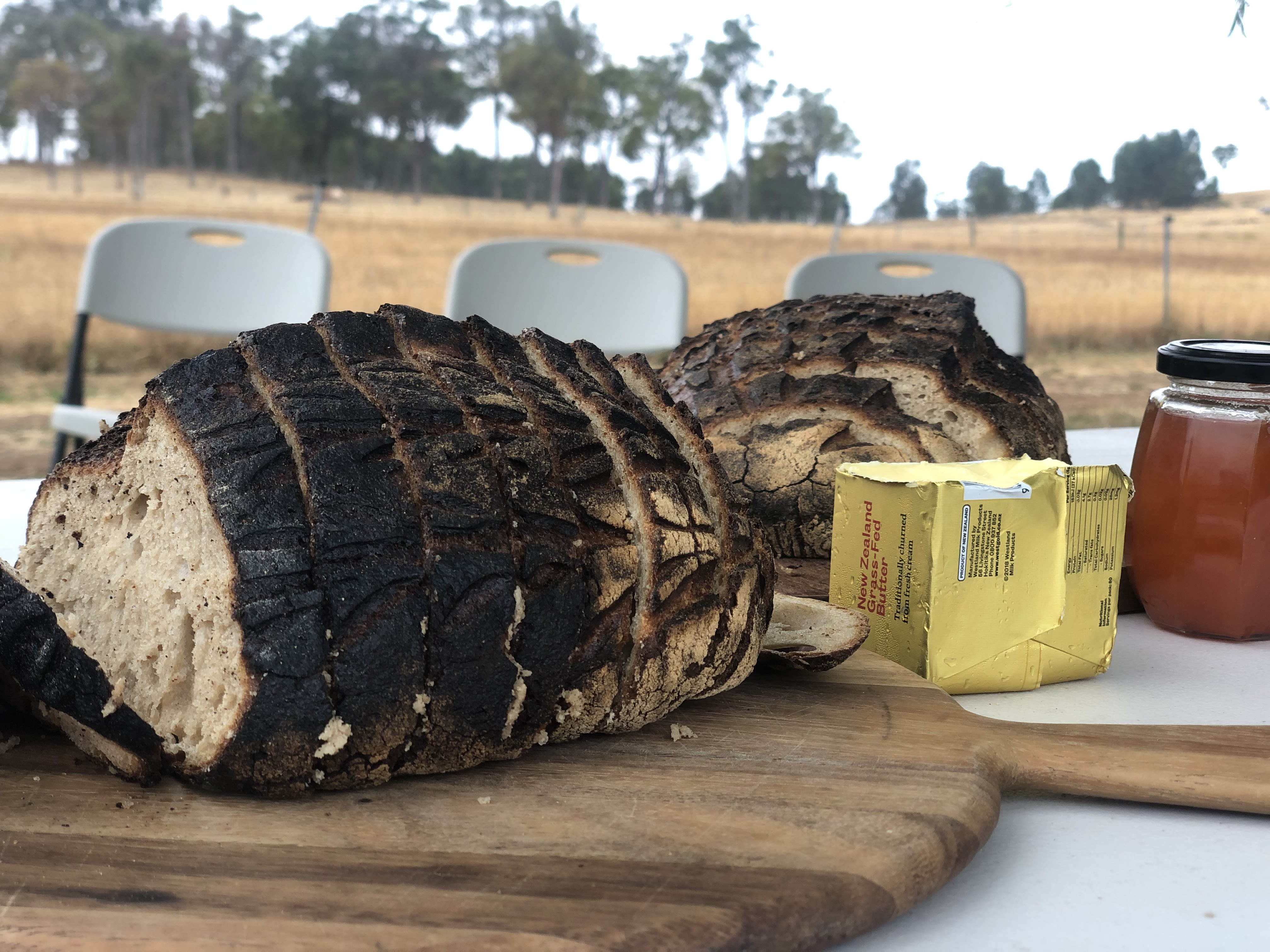
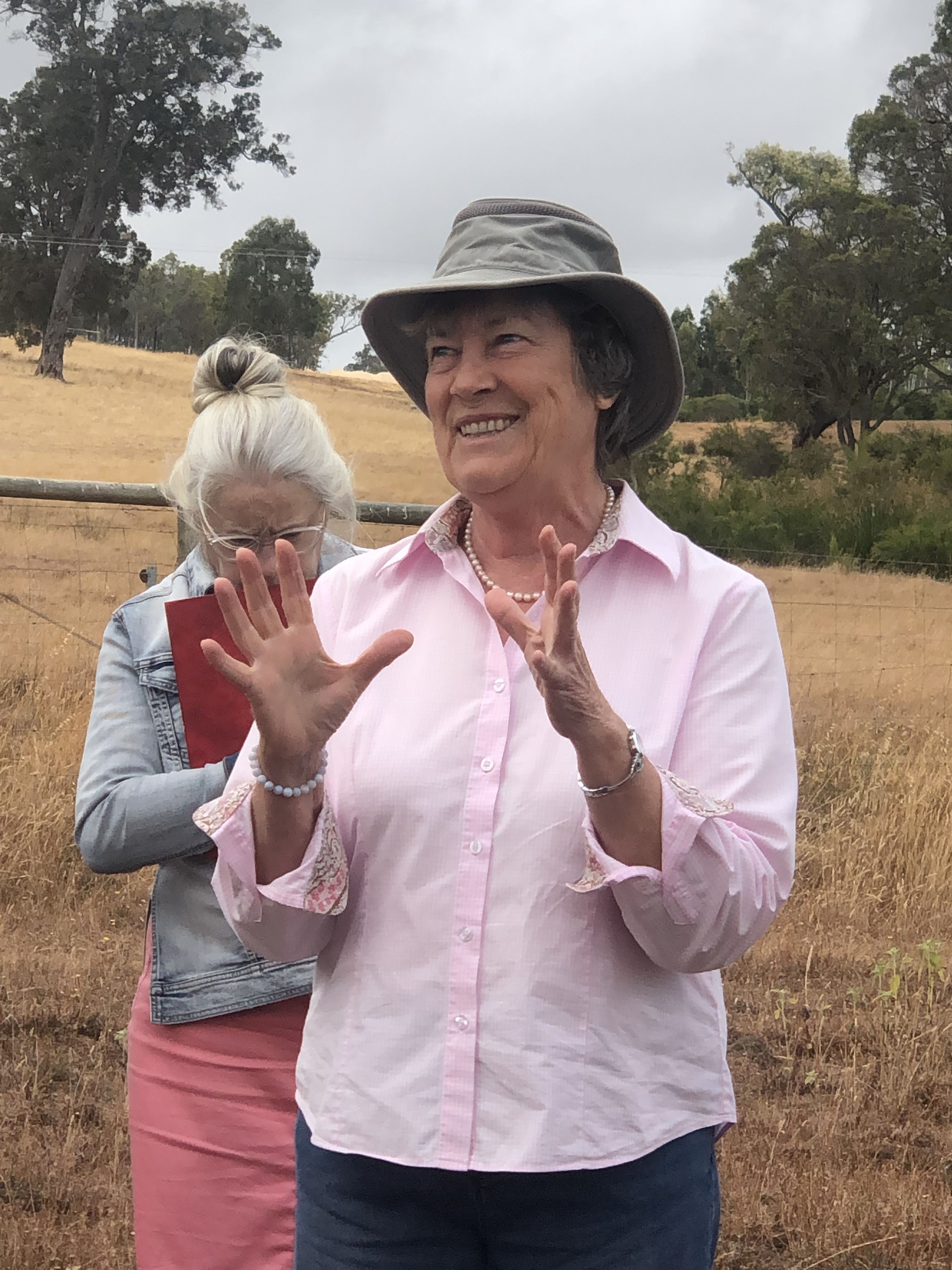
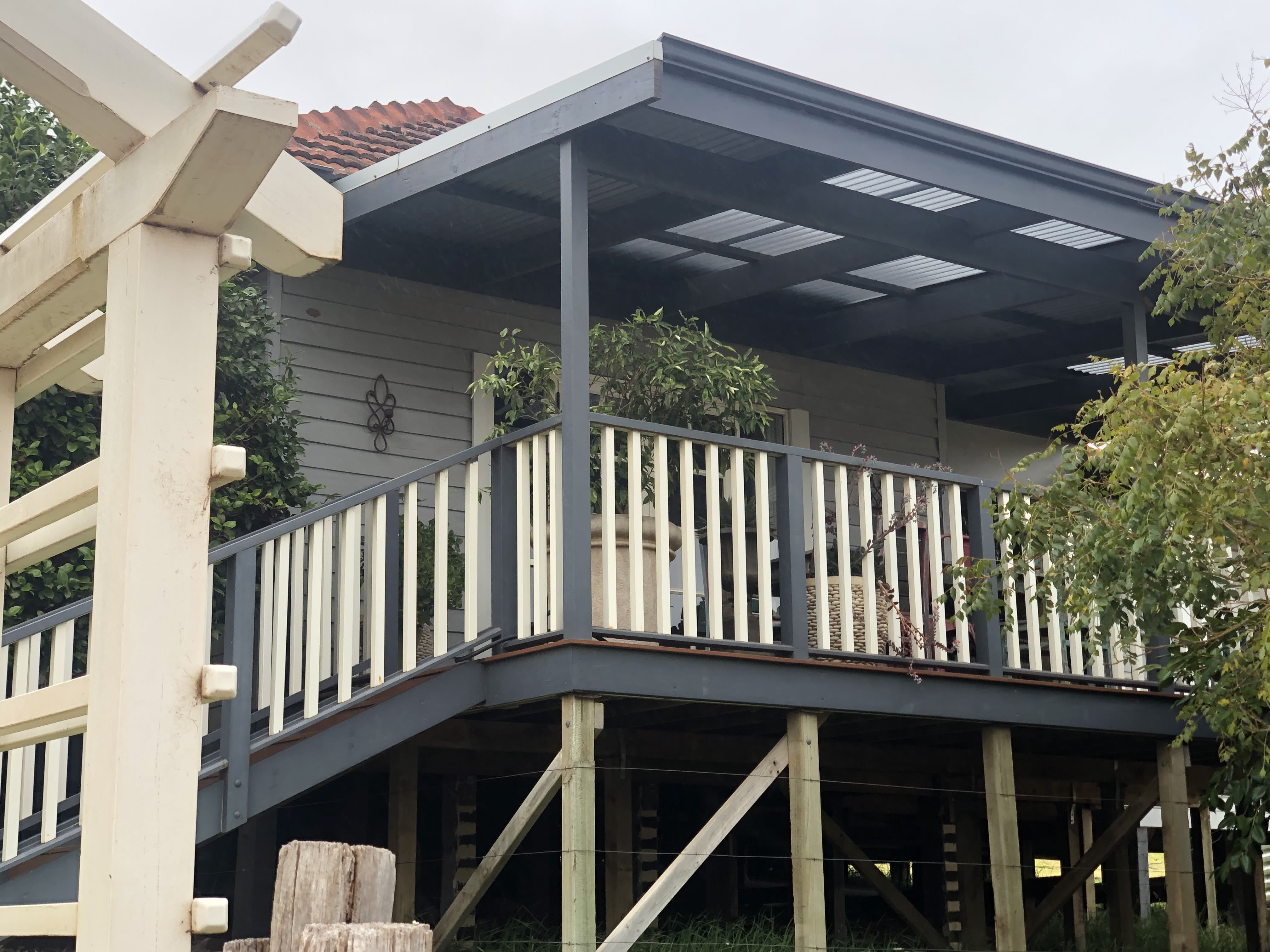
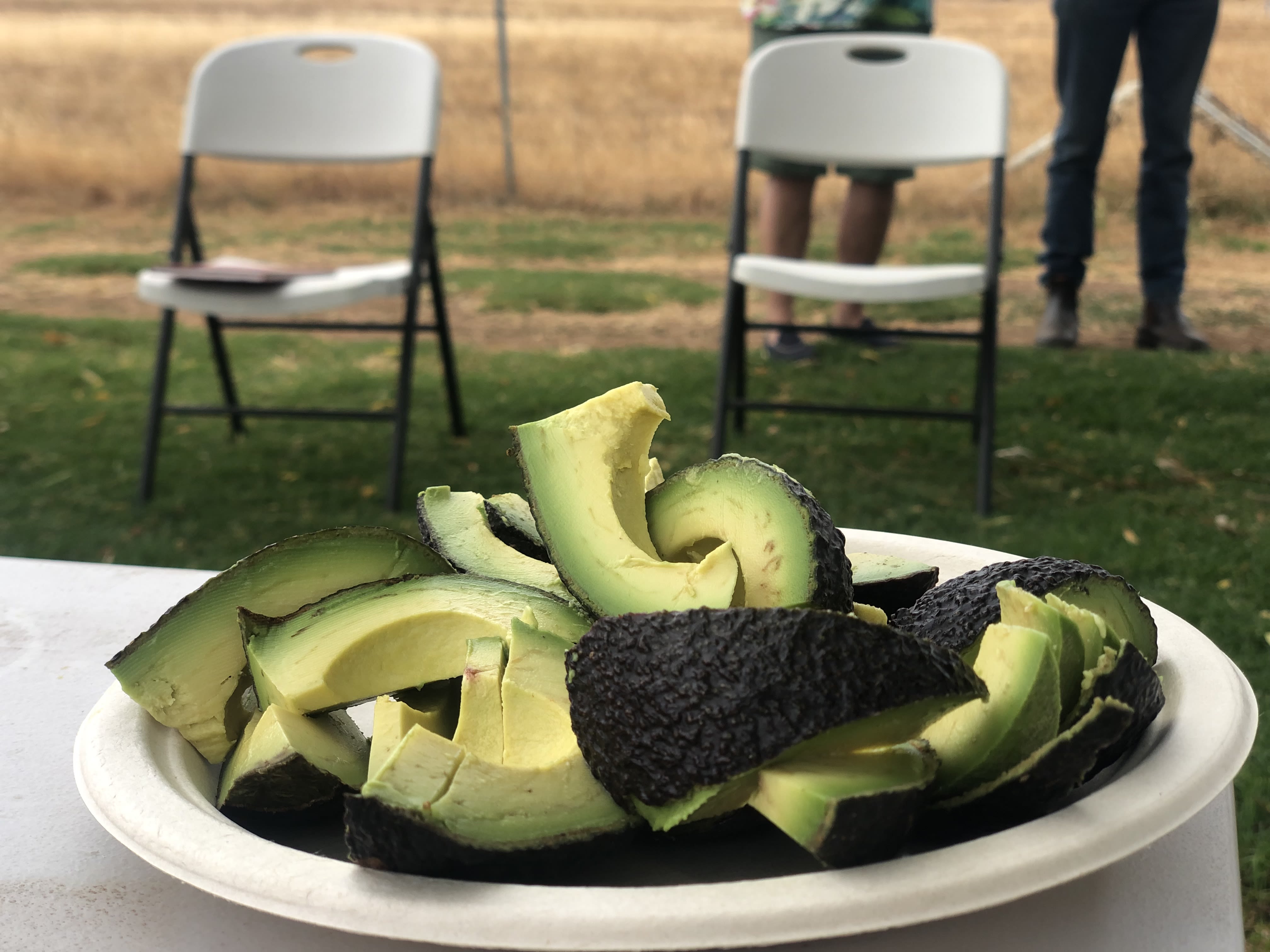
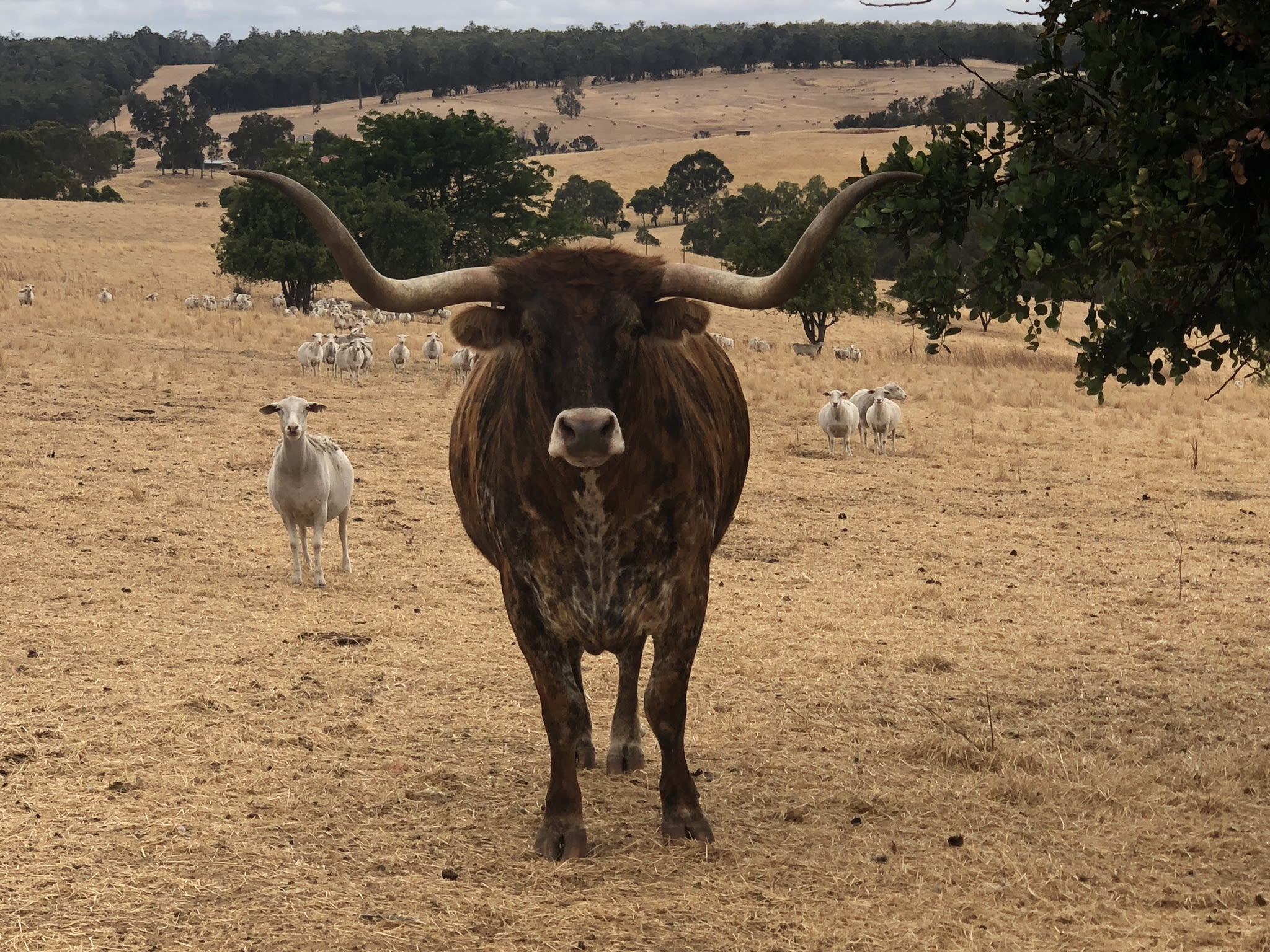

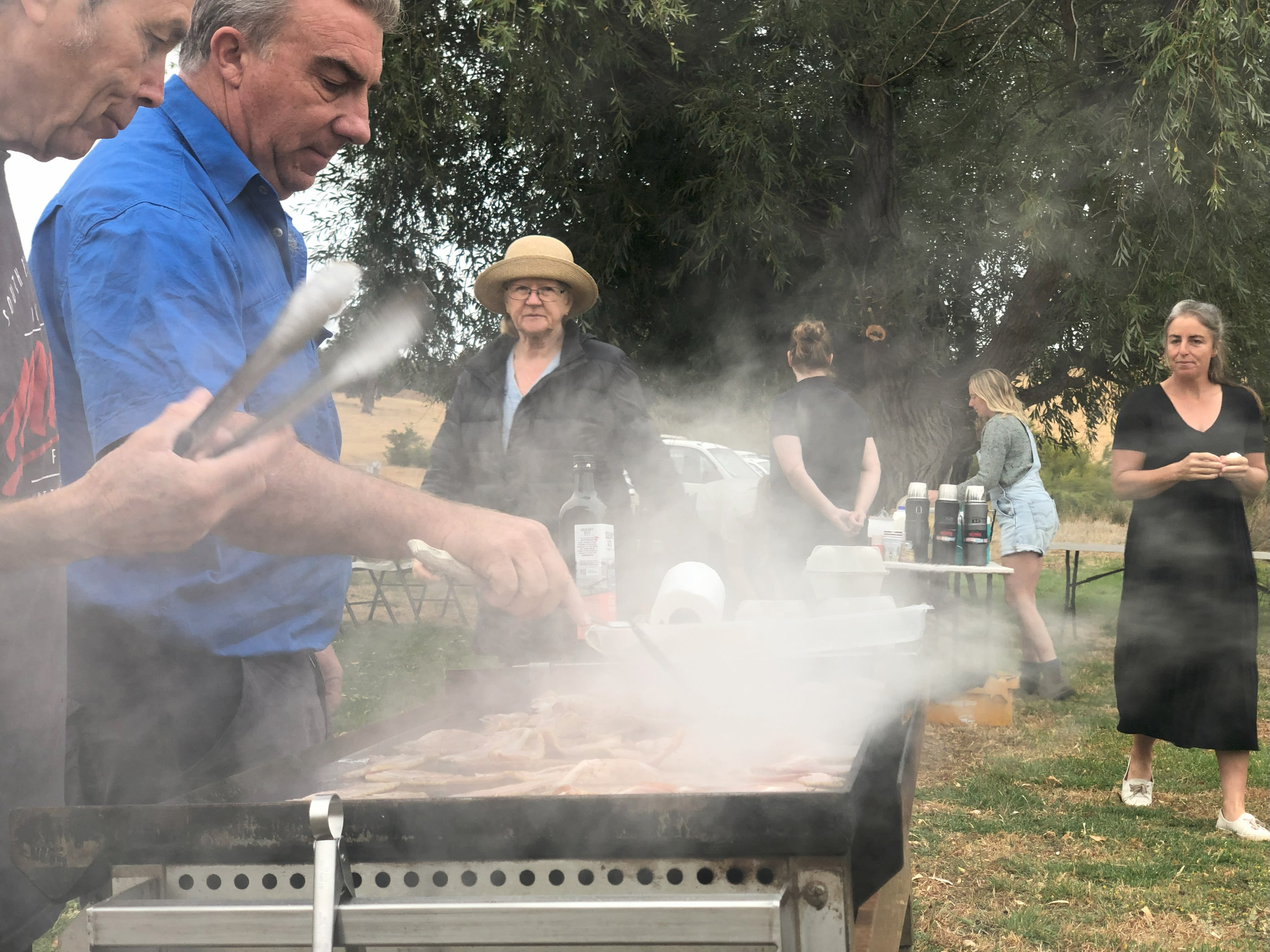
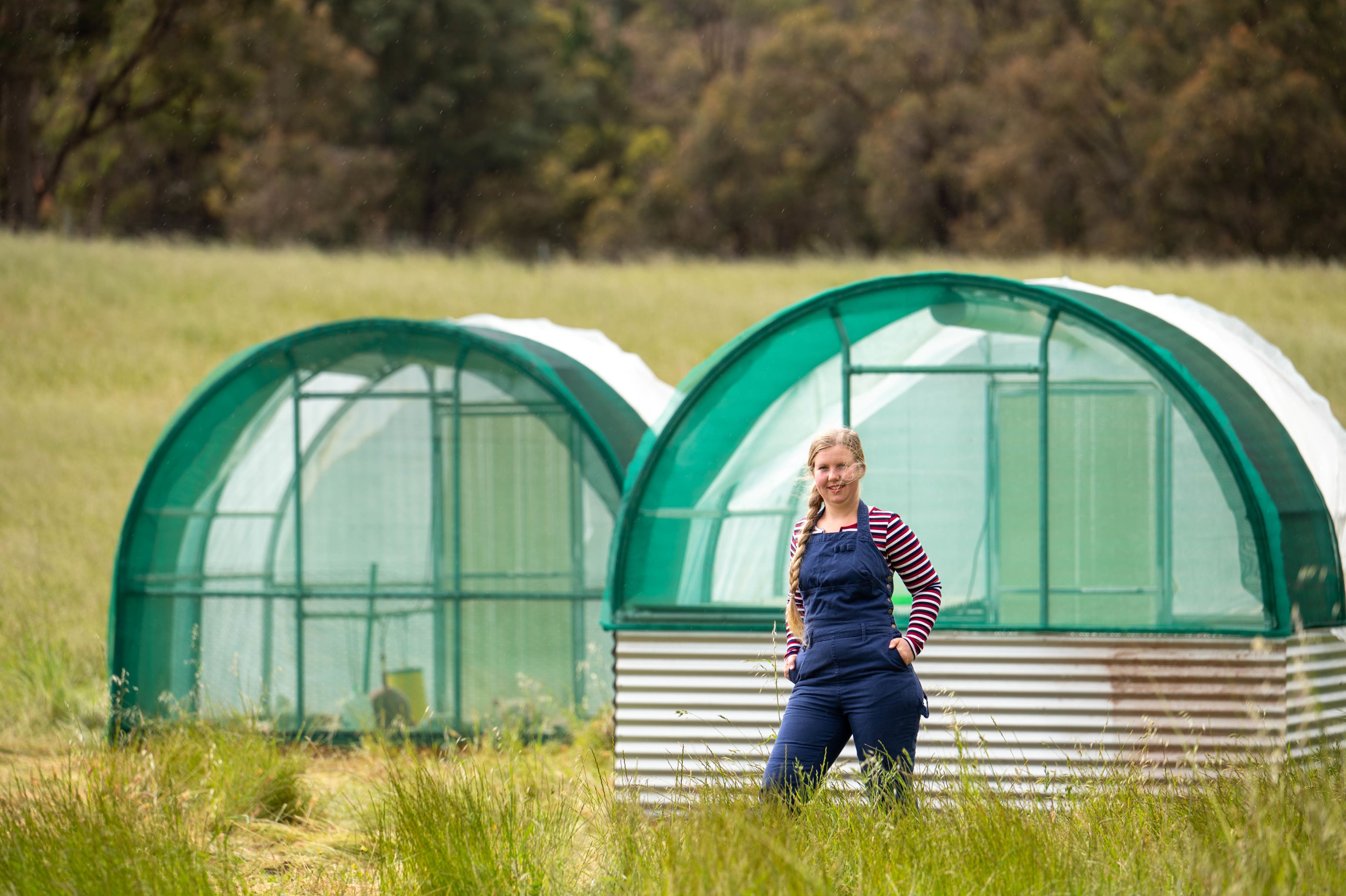
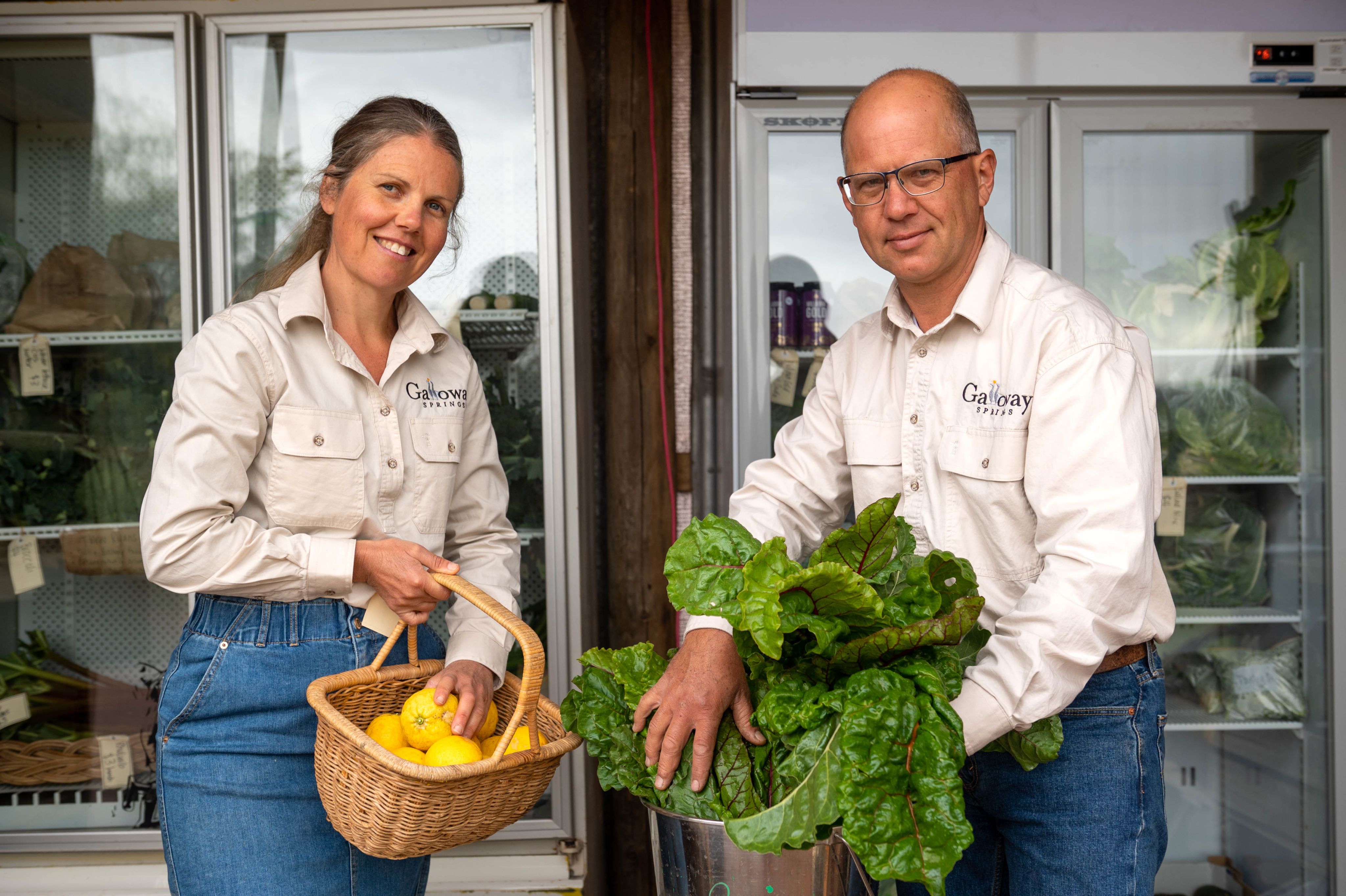
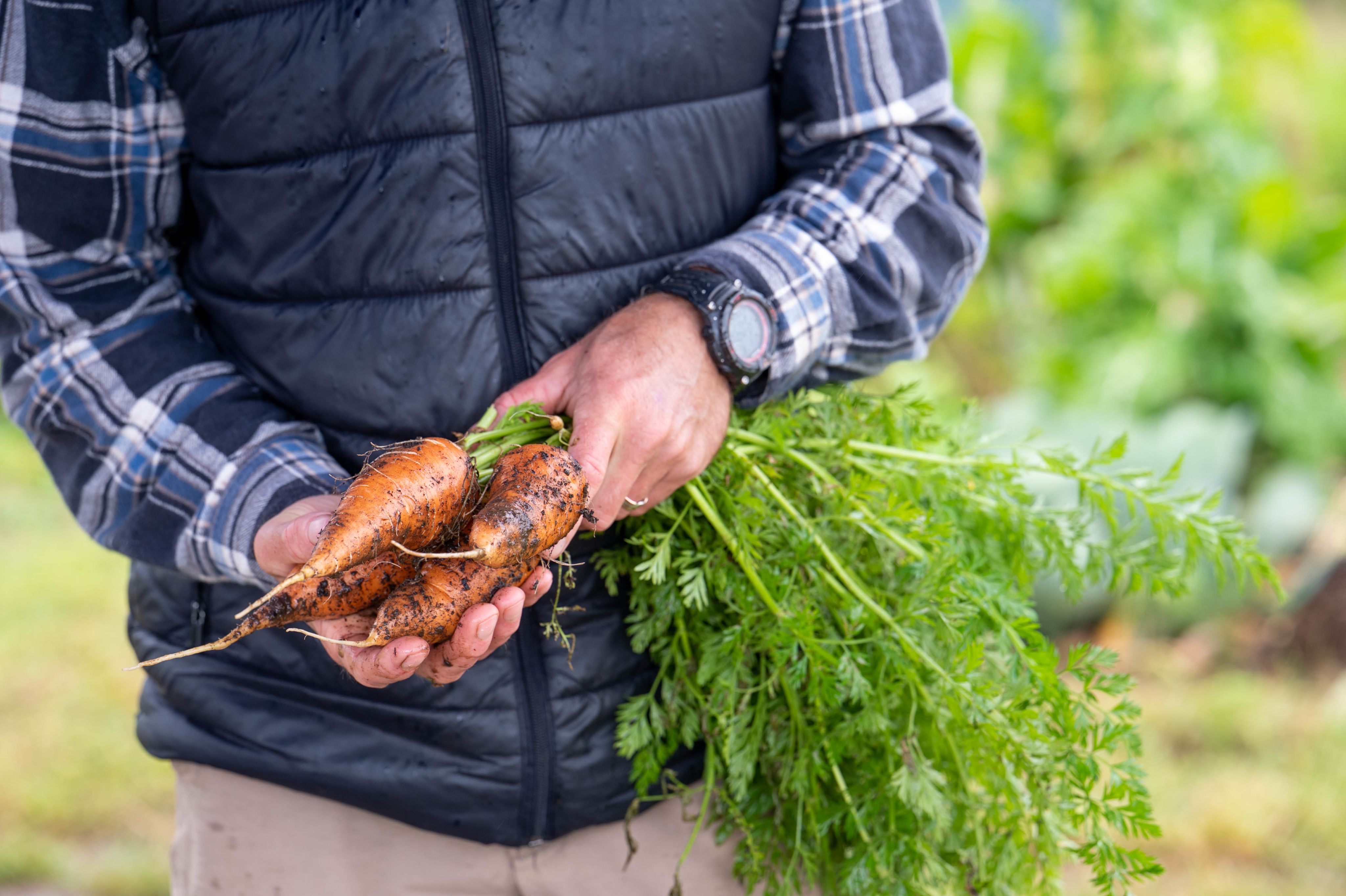












This article was produced by Talkin' After Hours, Lower Blackwood Landcare's Online Community & Information Hub.
